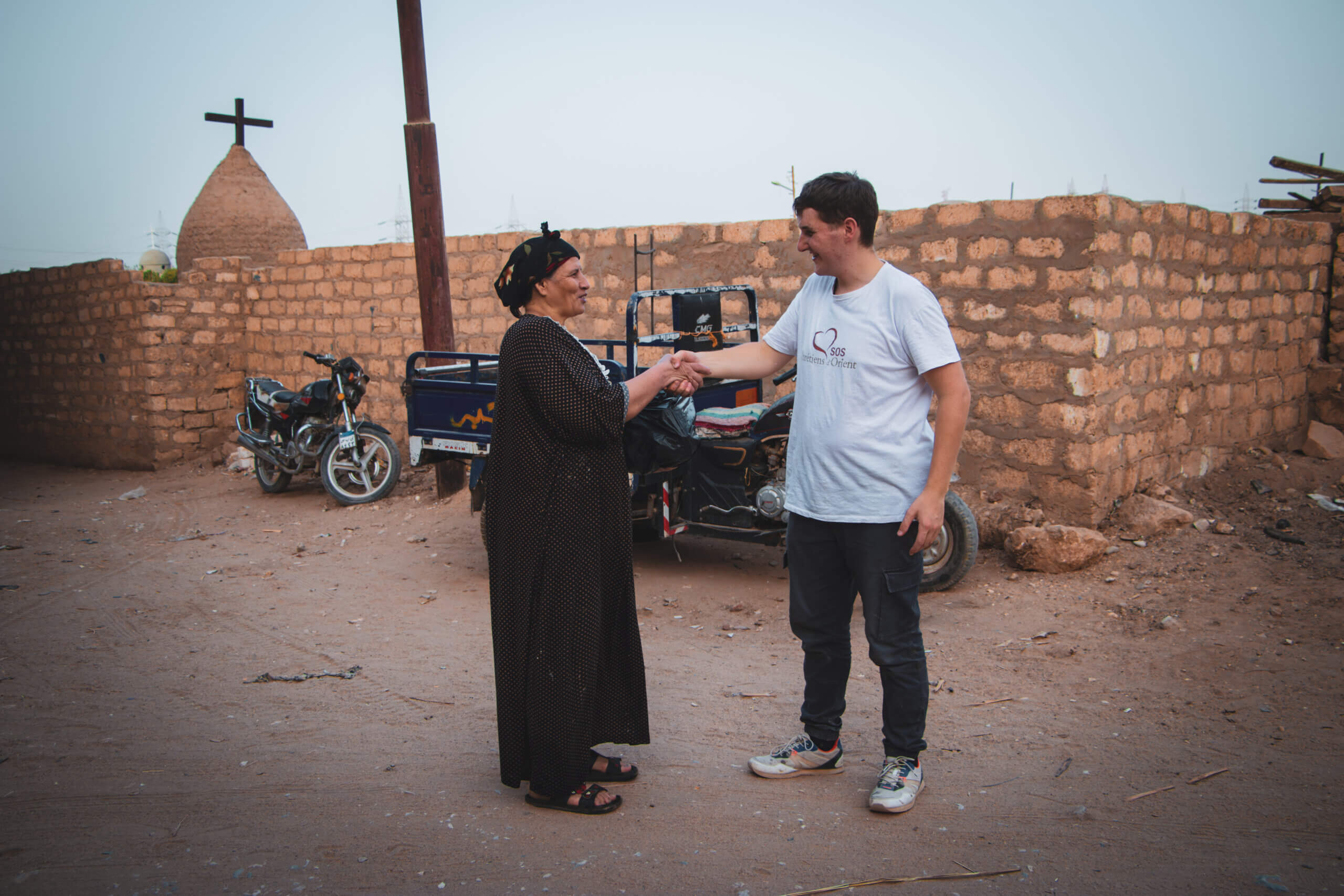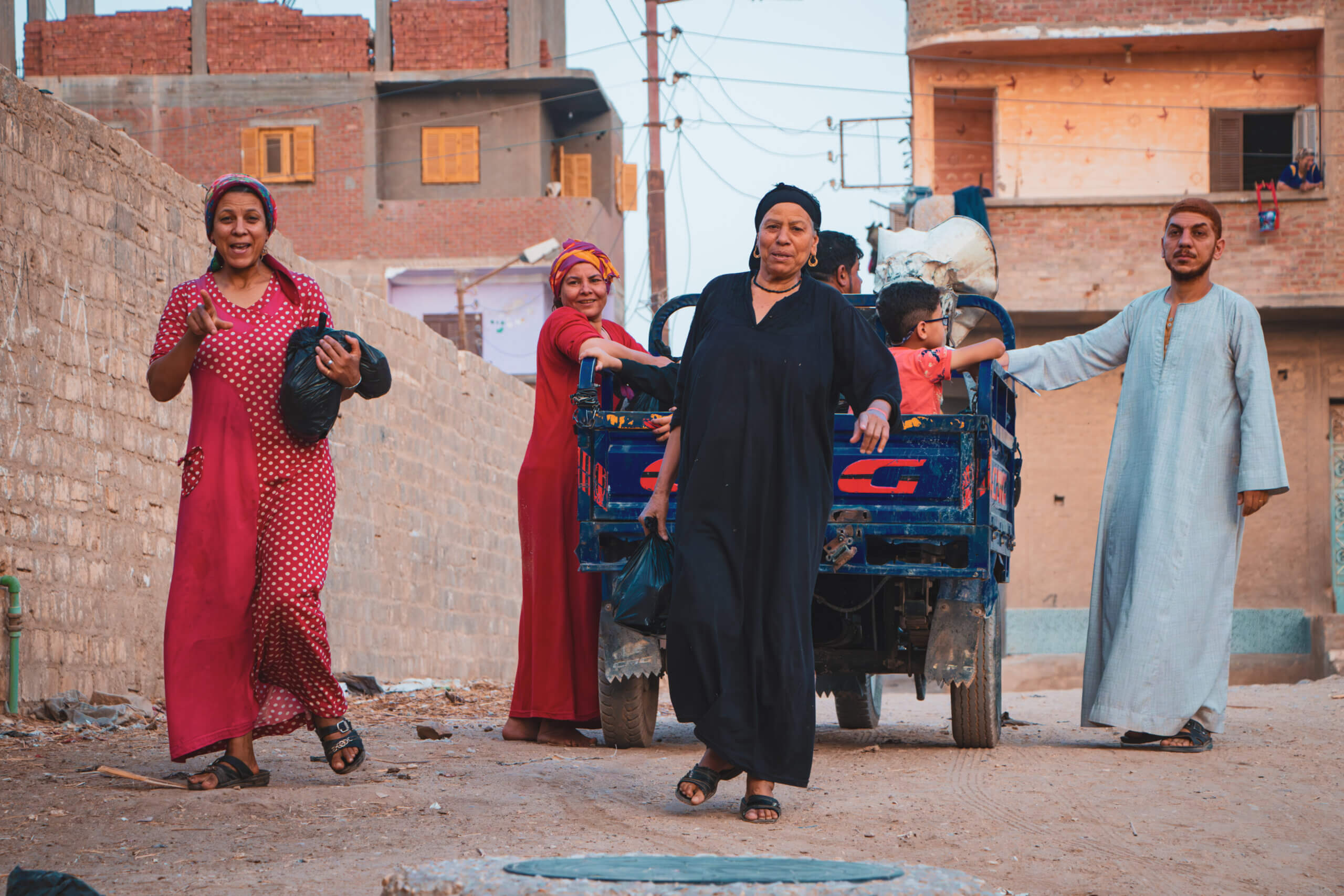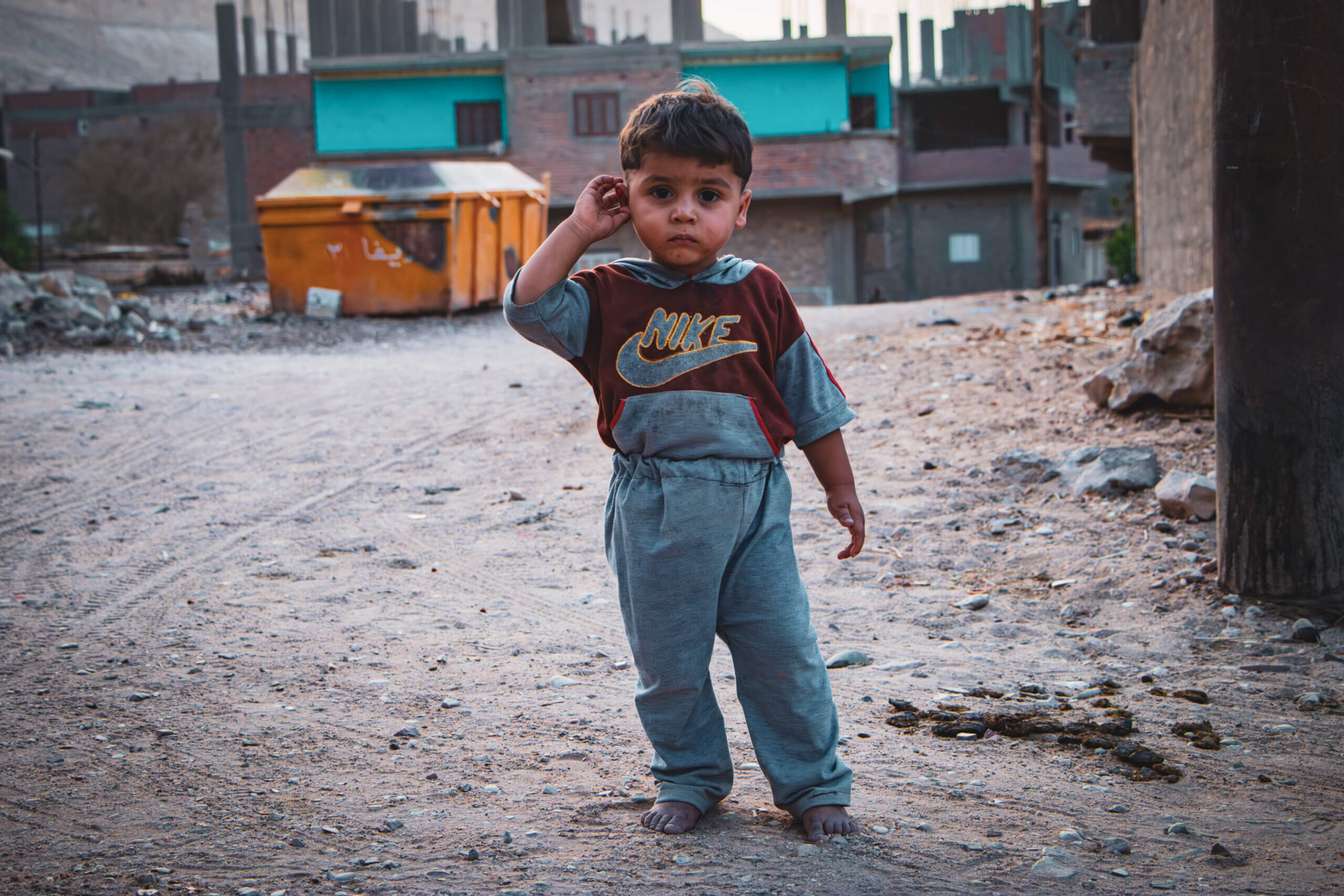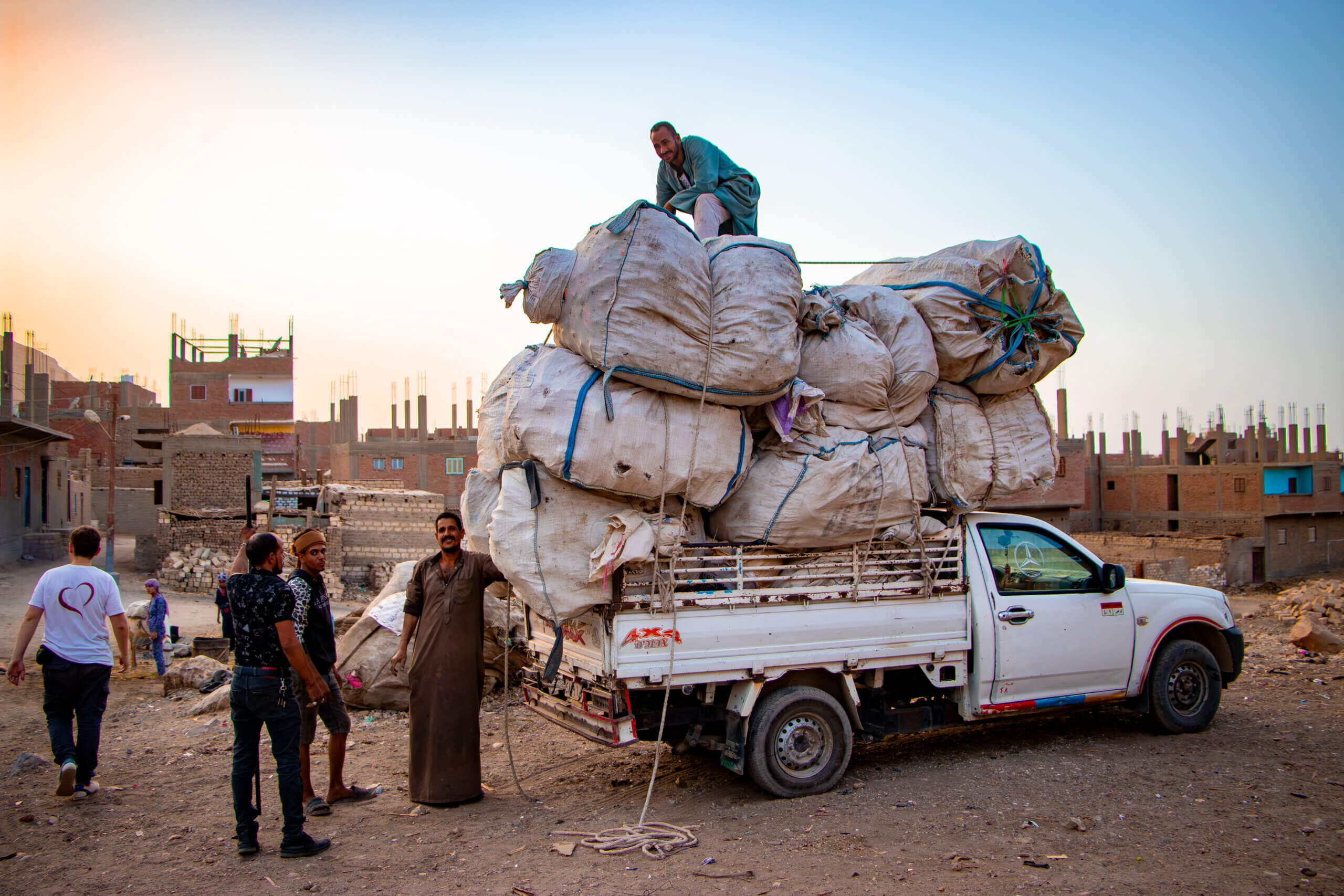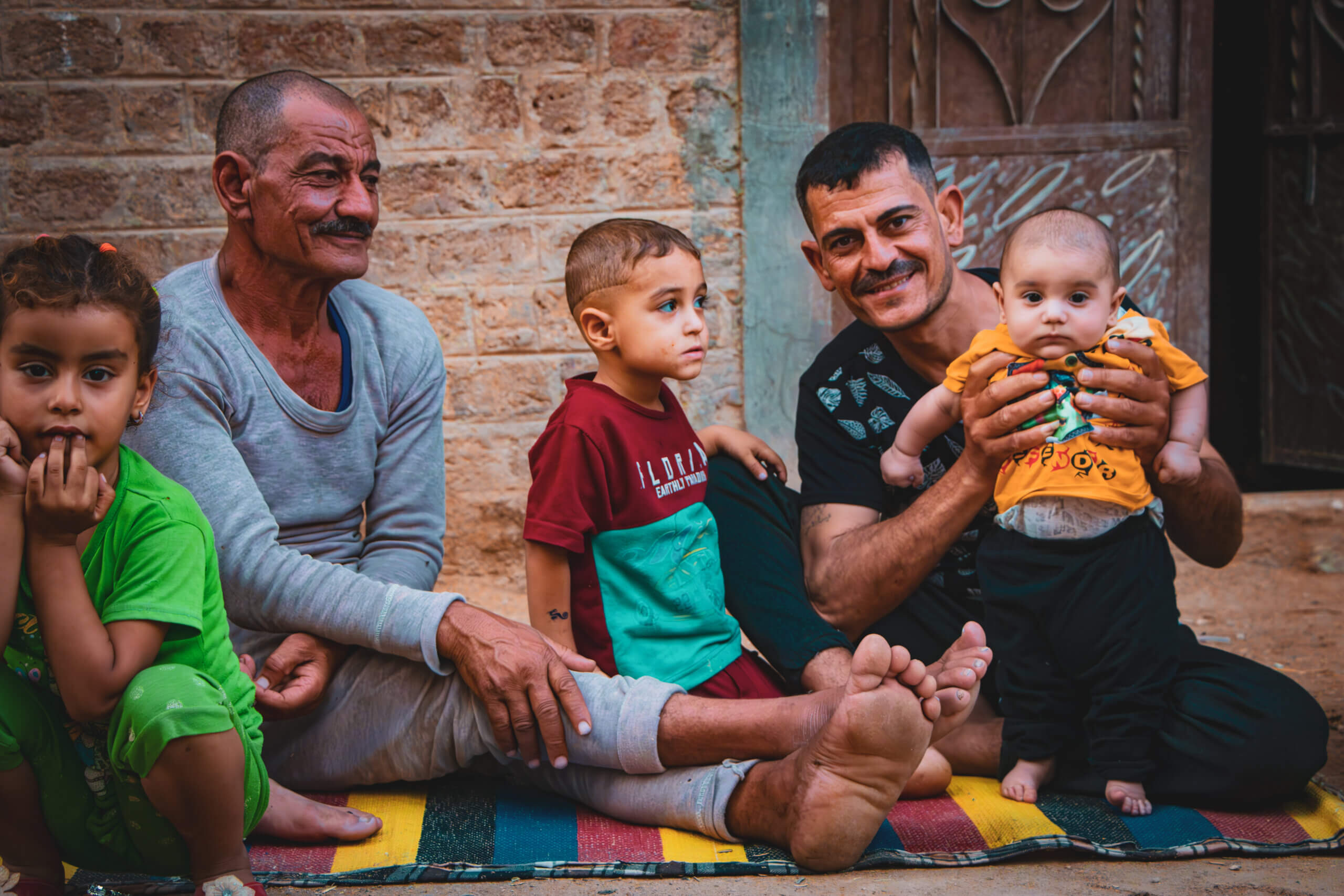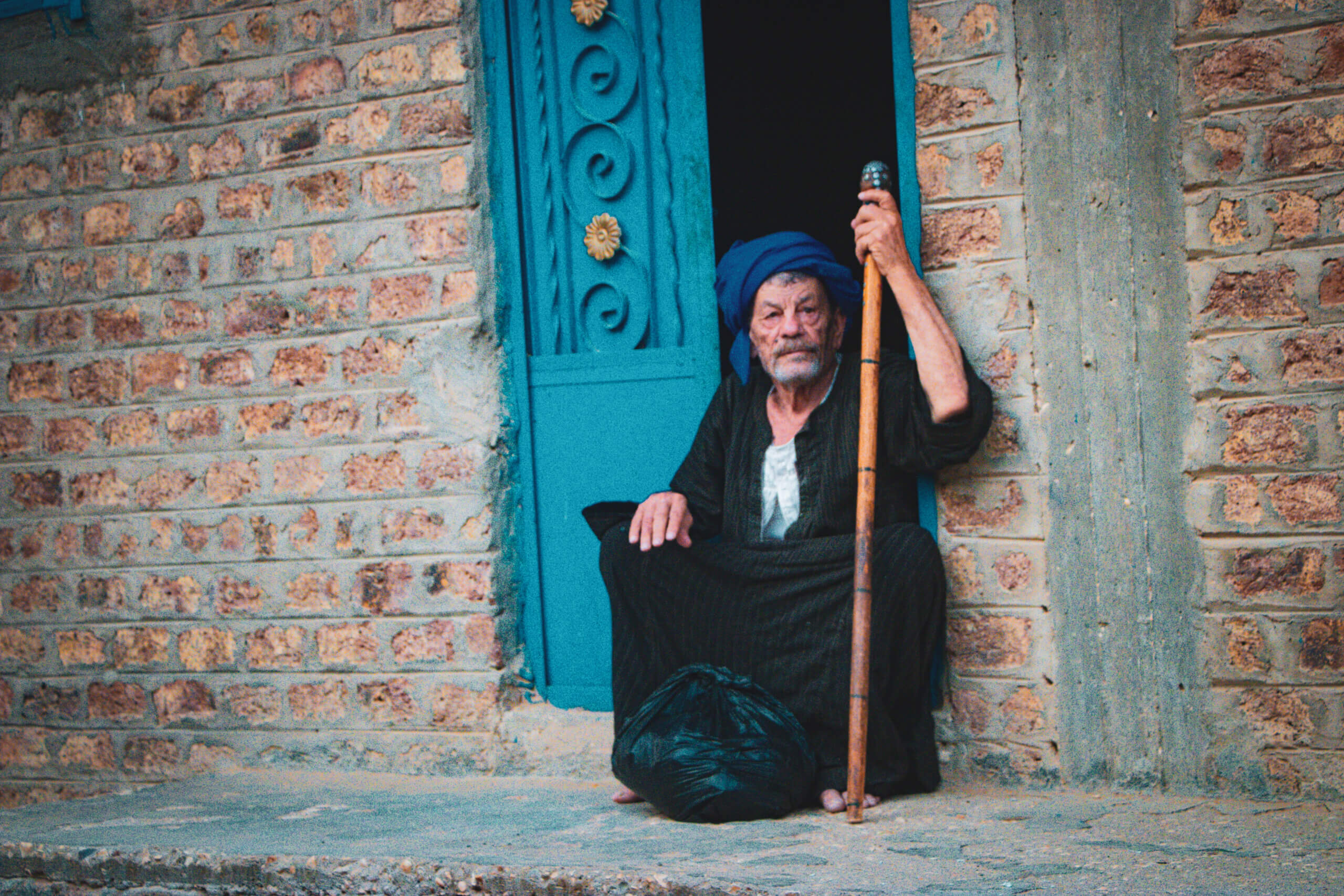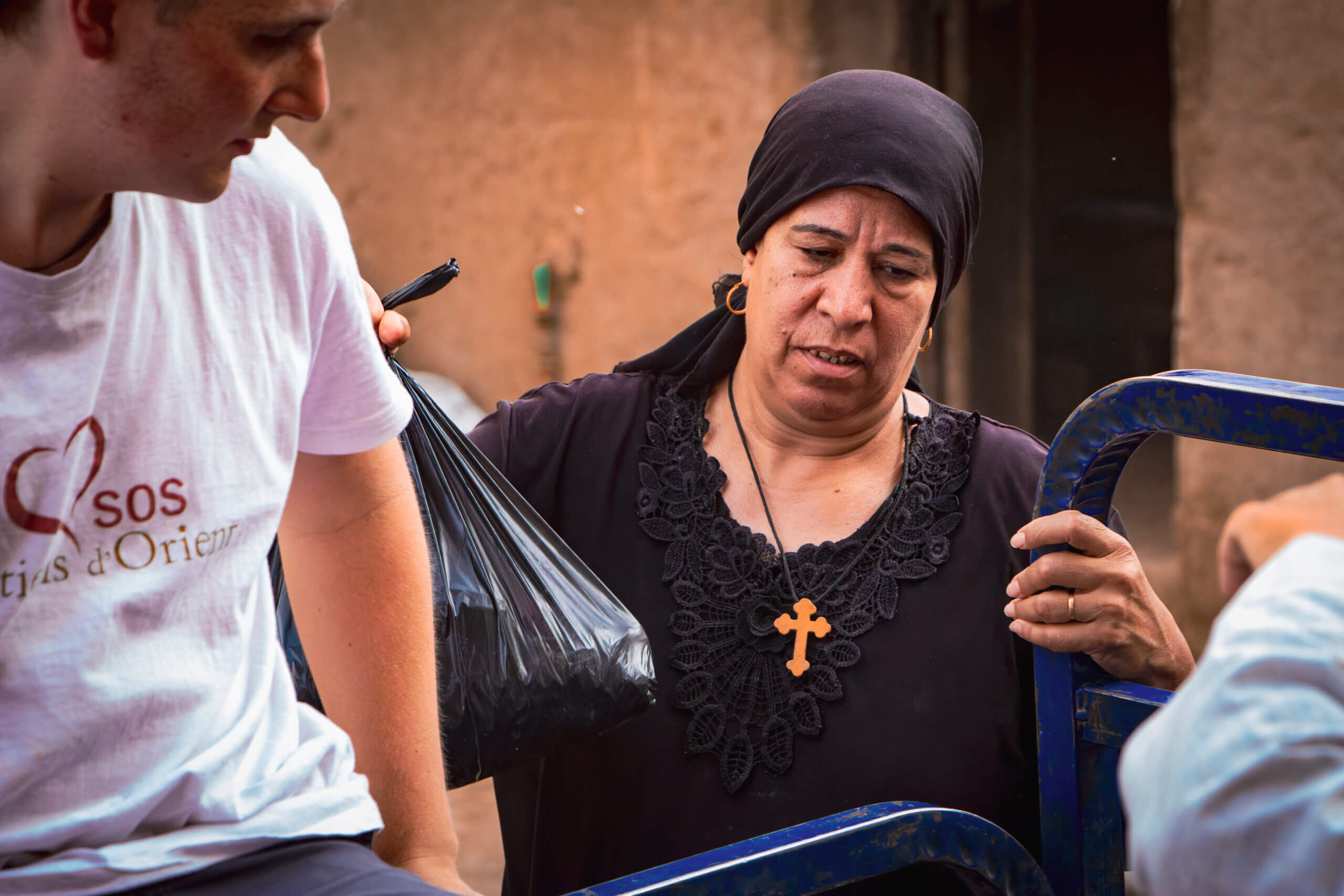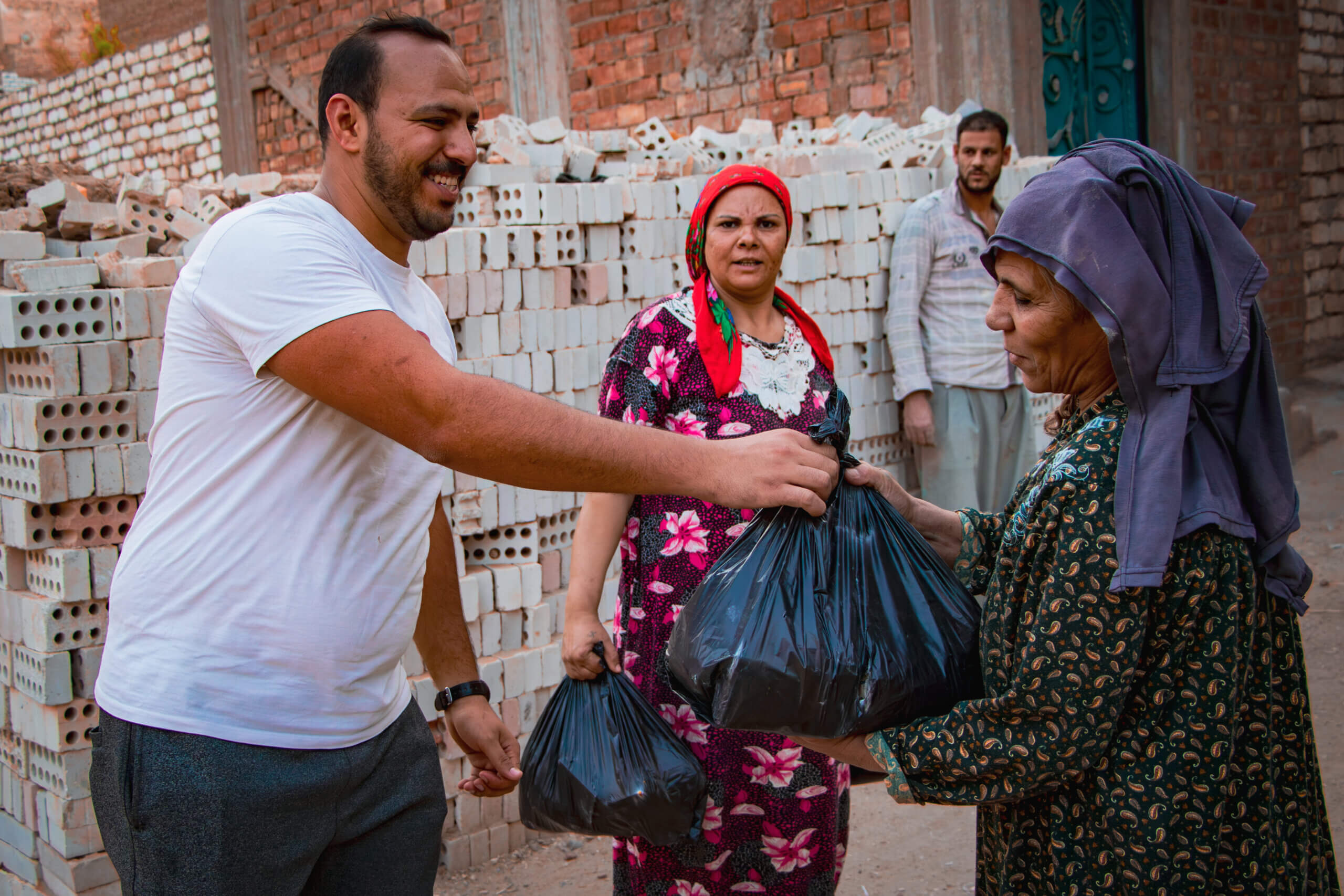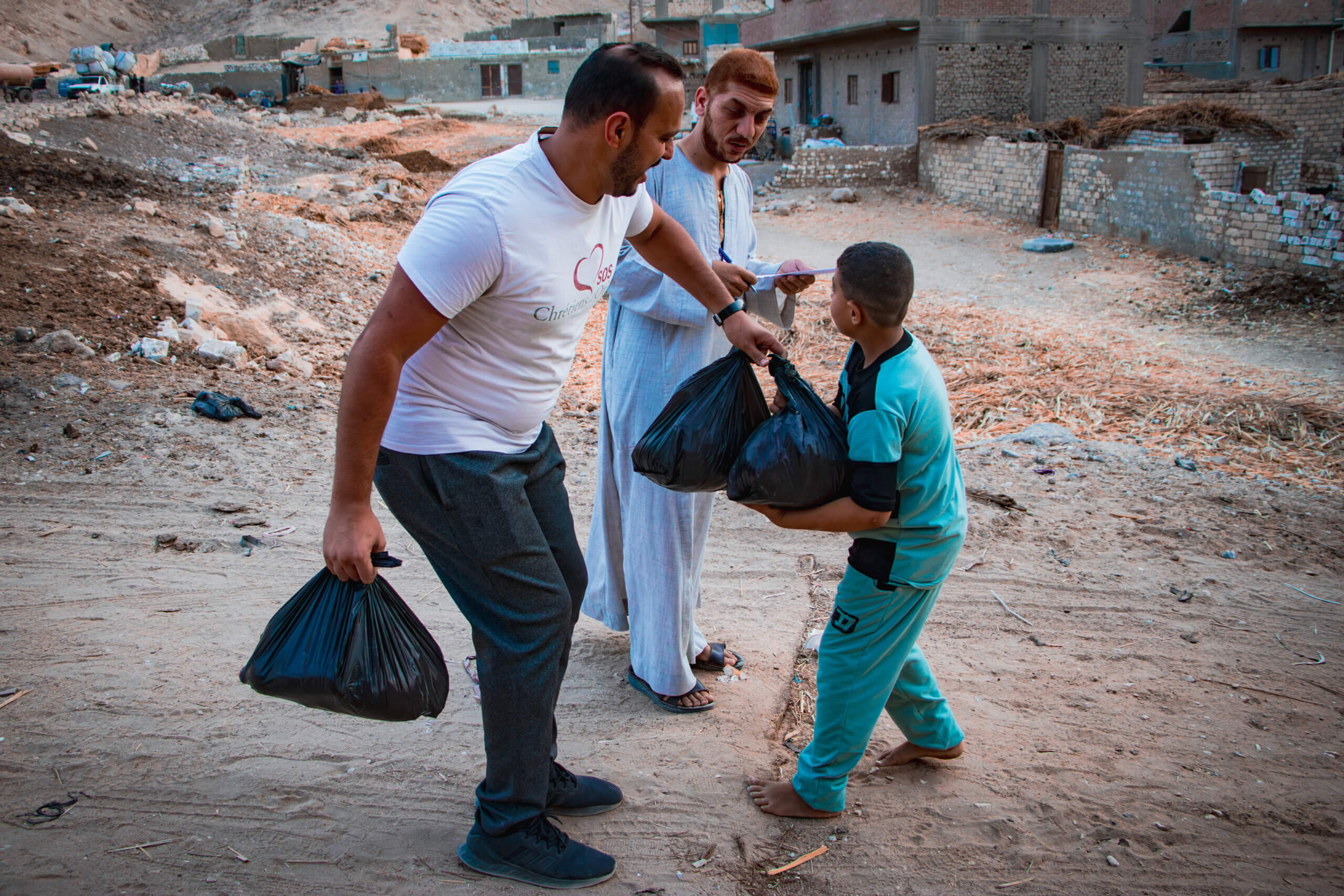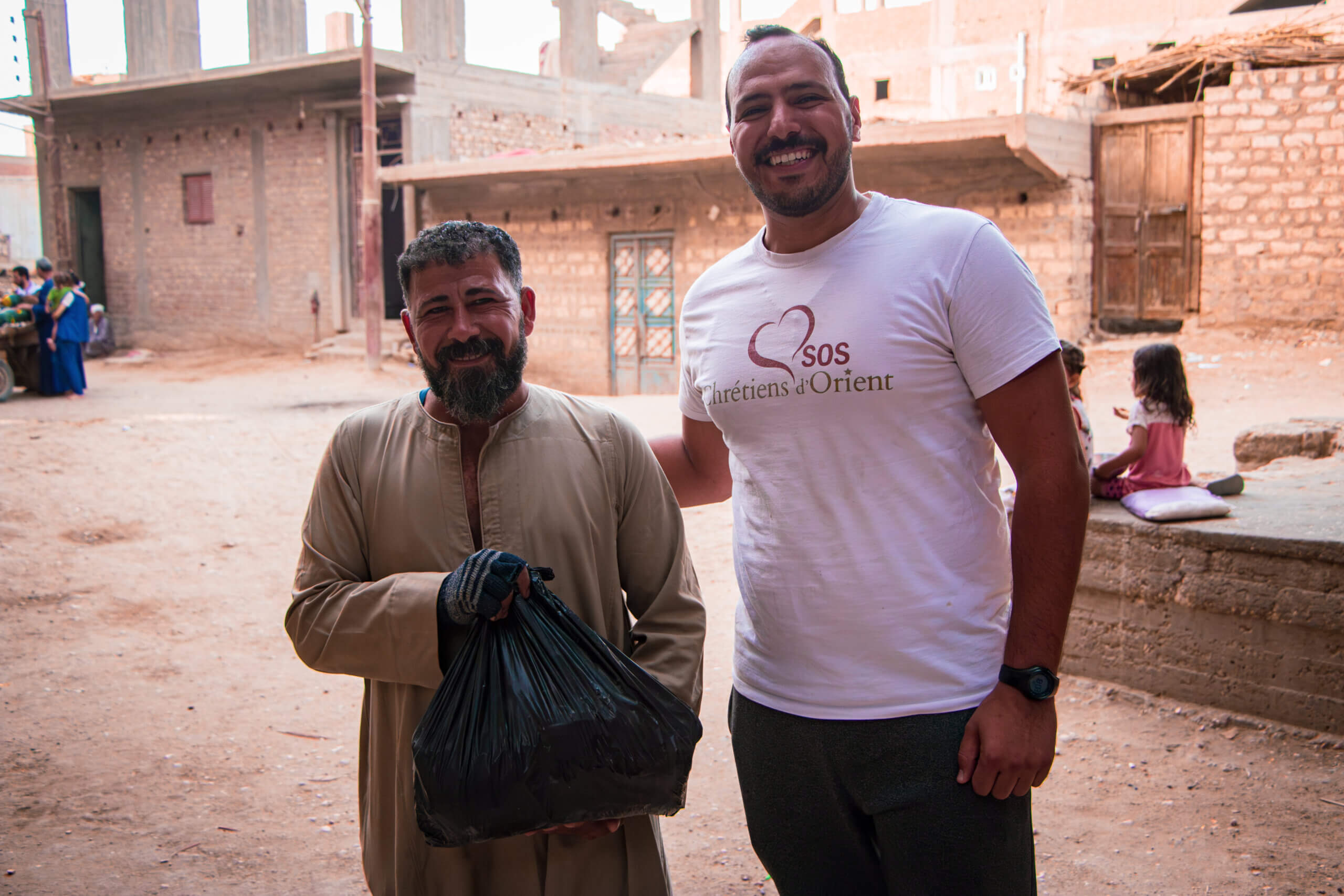Between the plains of the Nile and the limestone foothills housing troglodyte churches, volunteers deliver 280 food parcels to the poorest families in Deir Rifa, as sand swirls like smoke and the sun’s rays scorch the arid land of Upper Egypt. A three-hour mission in challenging climatic conditions that required extra determination to complete.
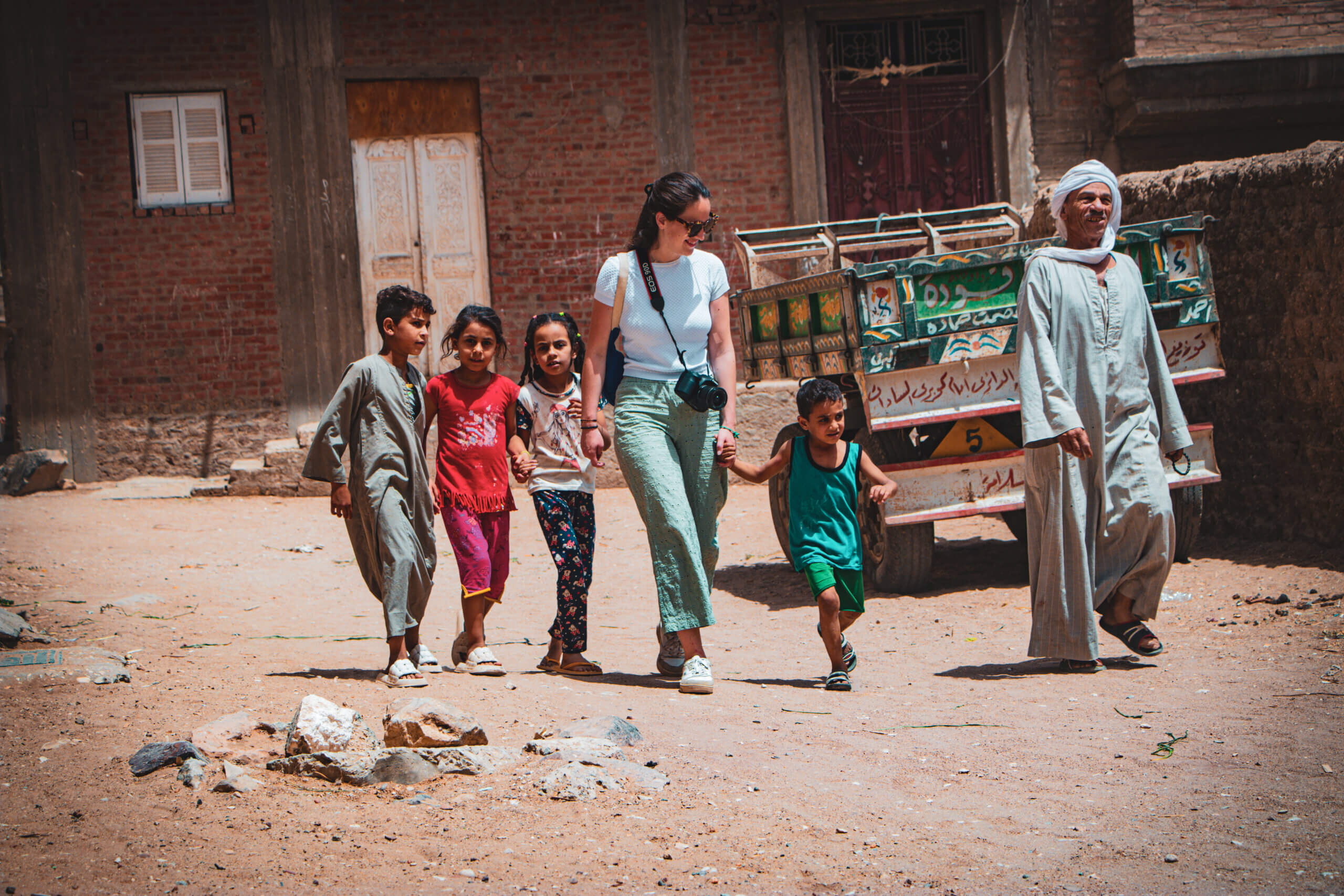
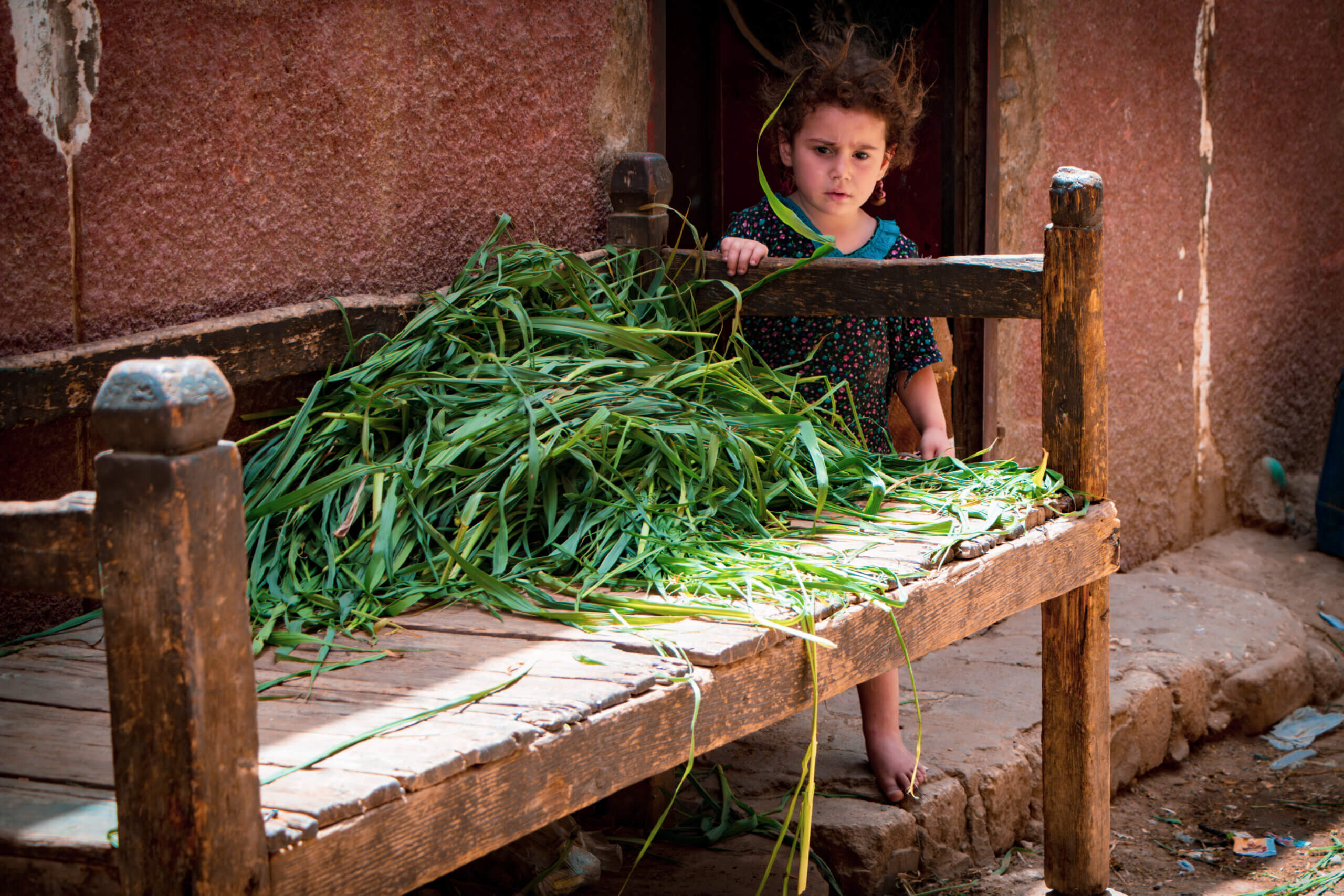
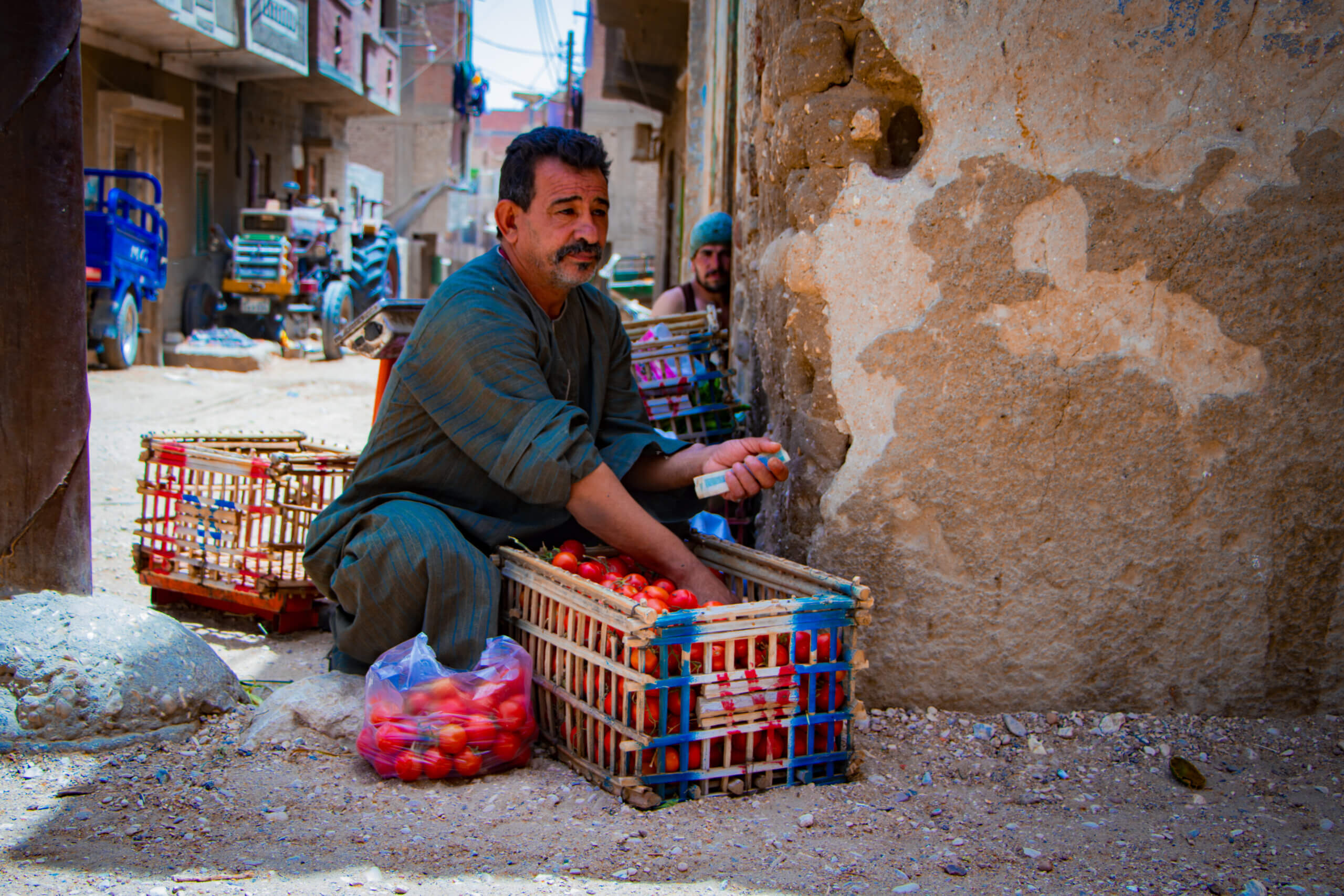
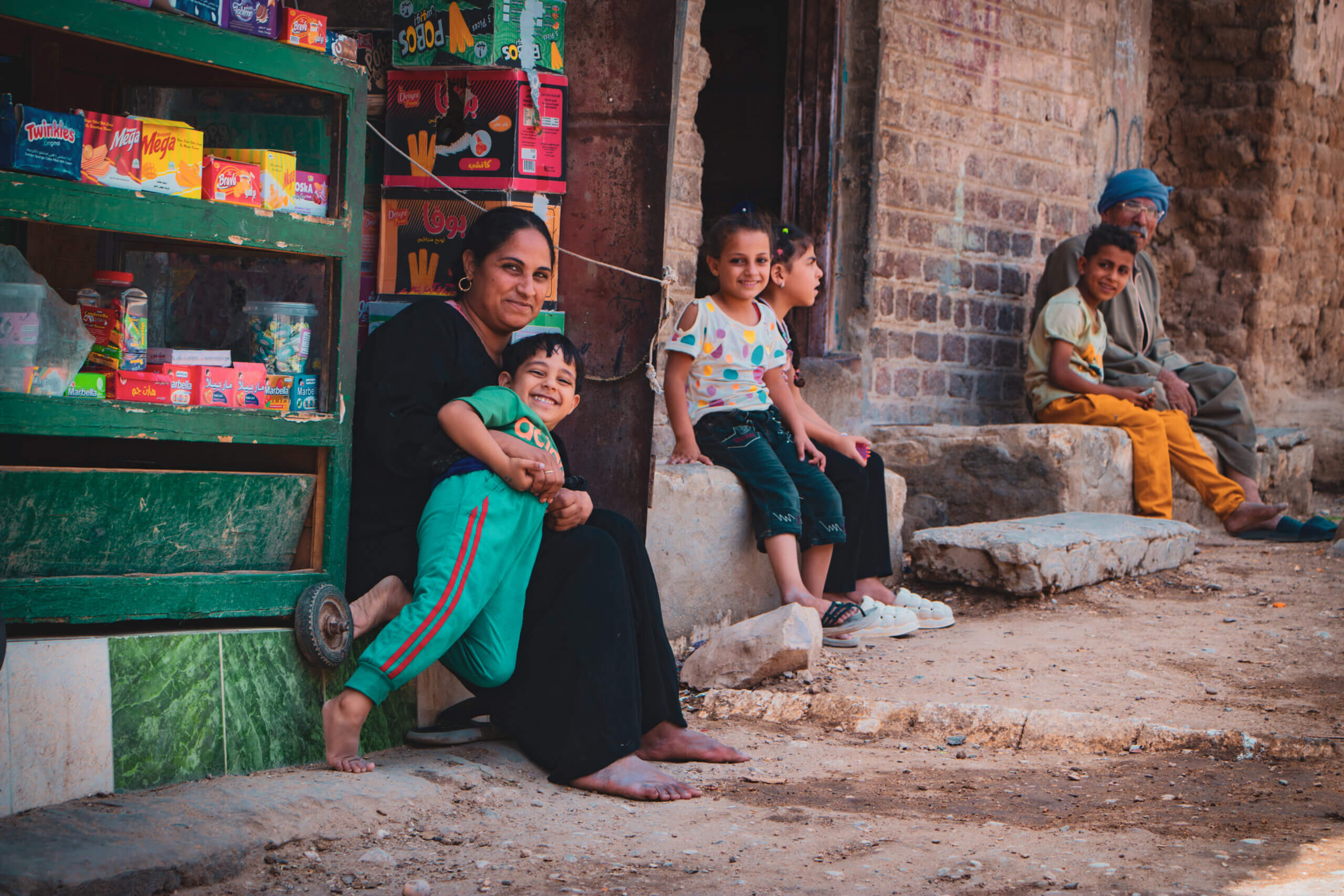
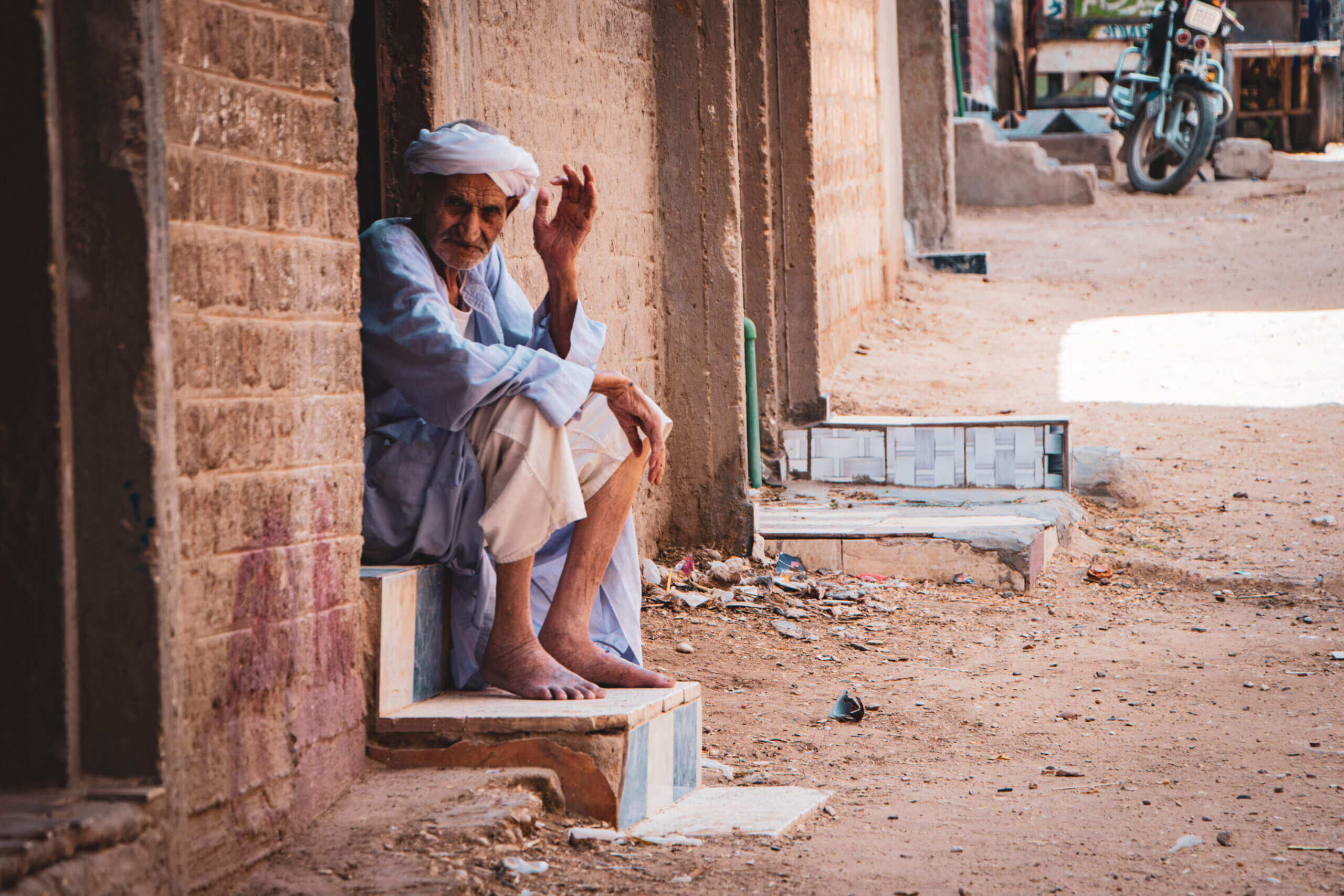
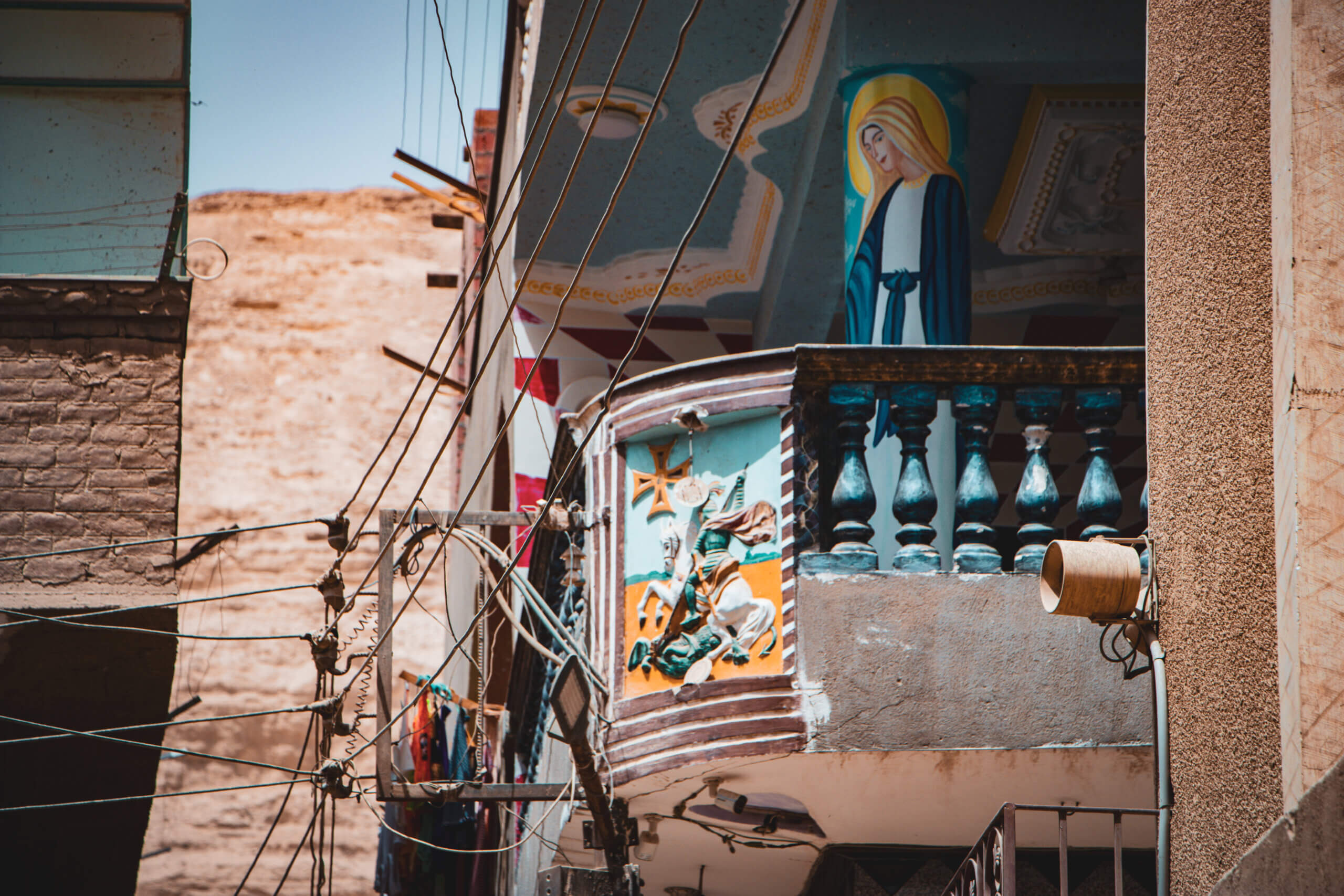
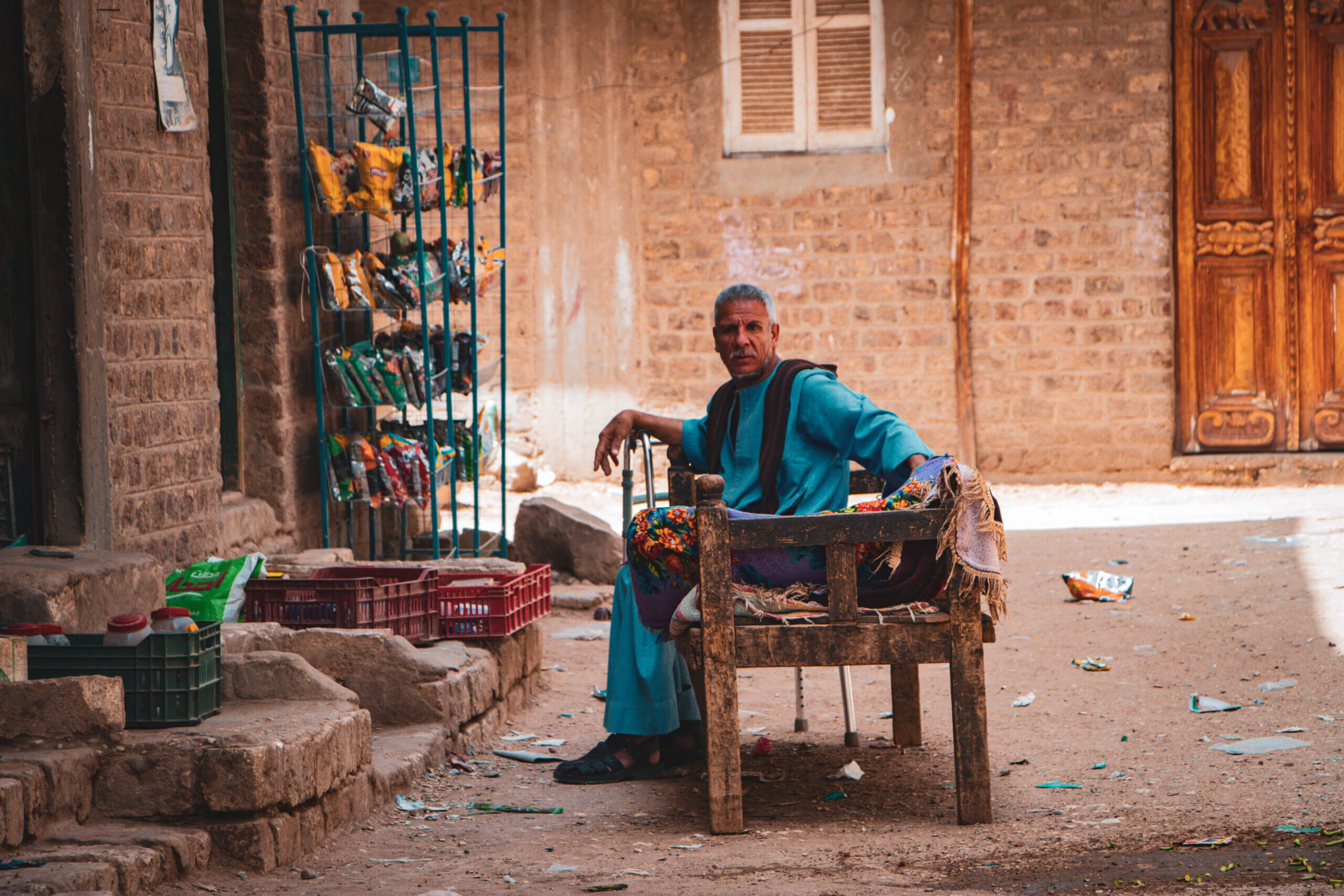
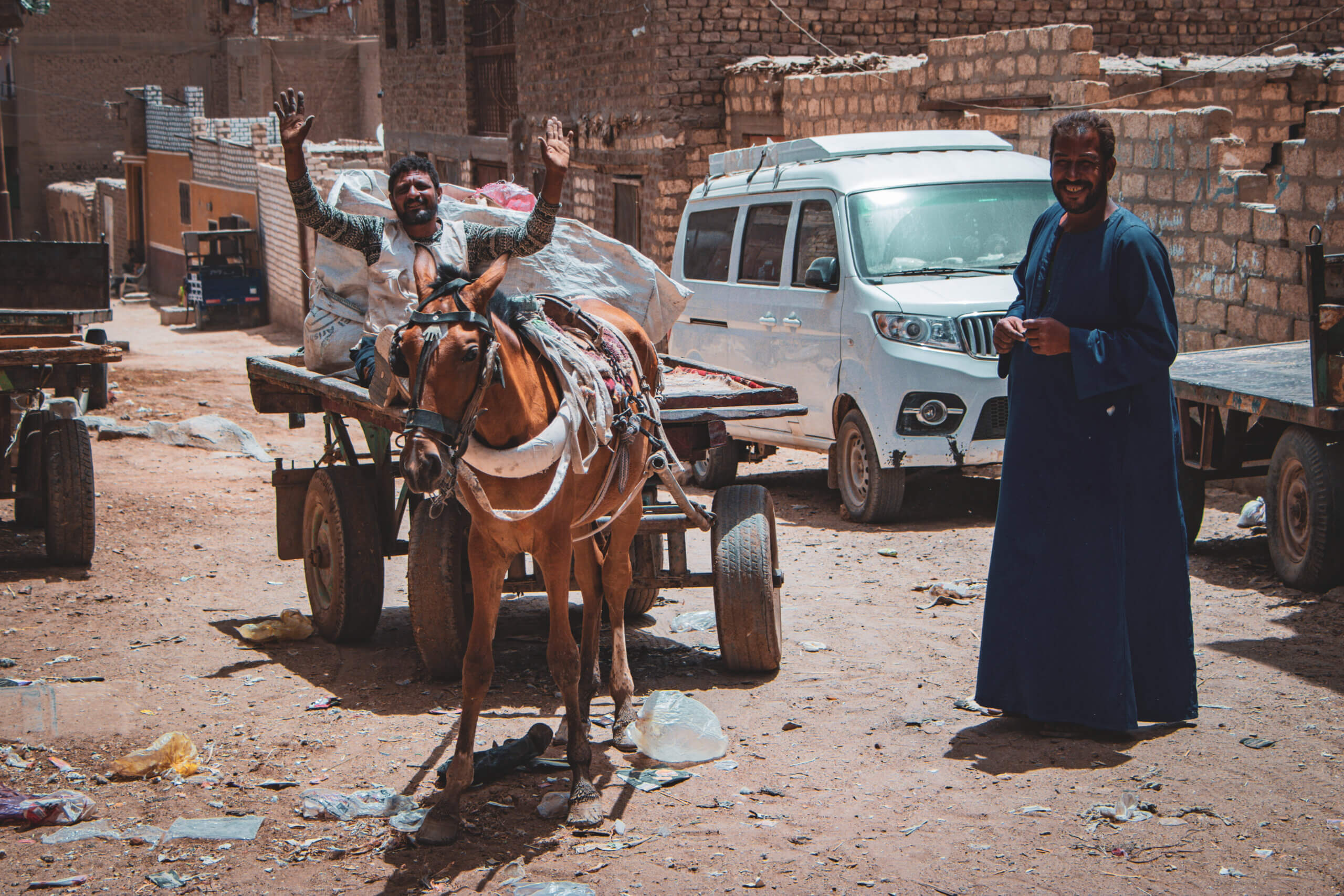
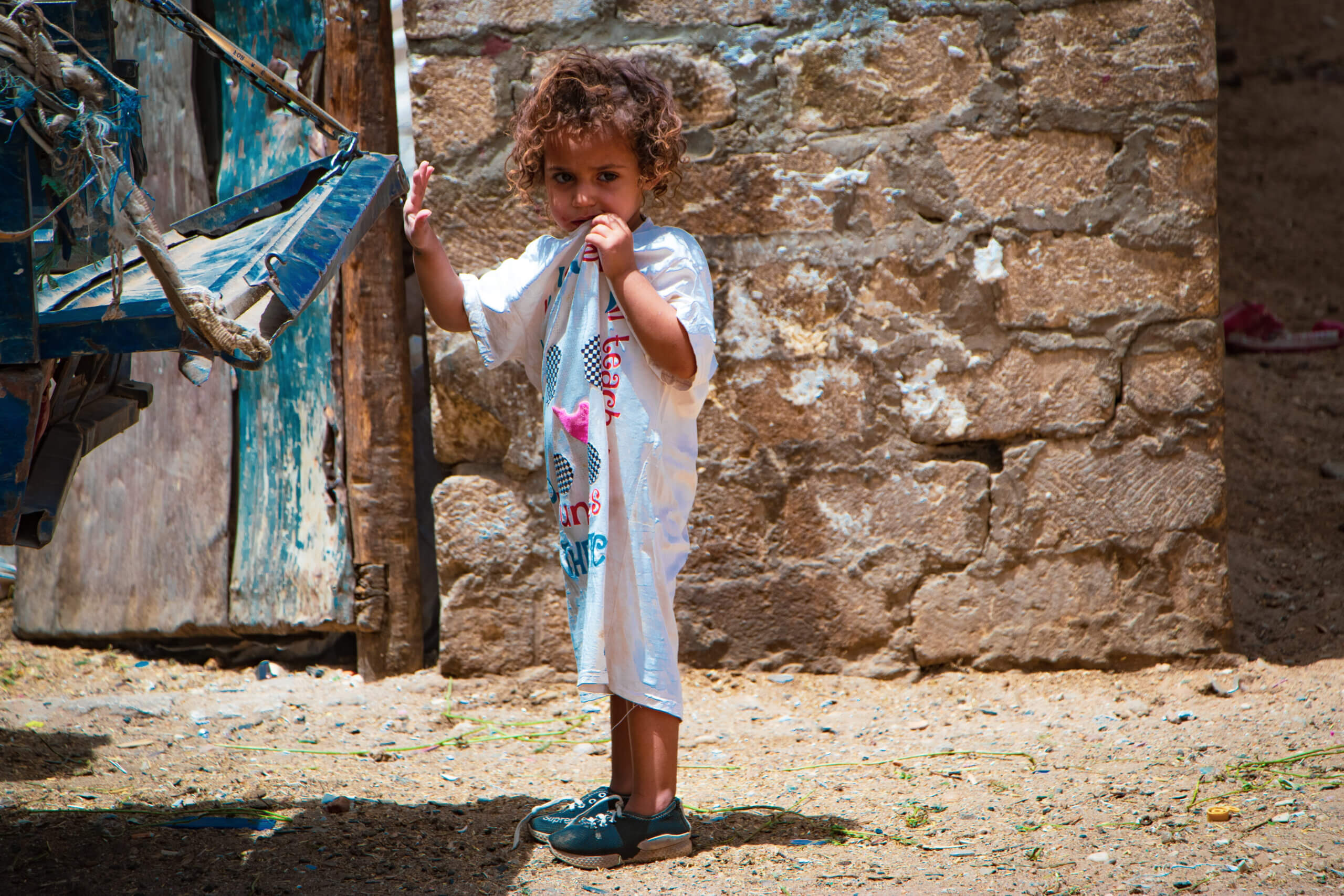
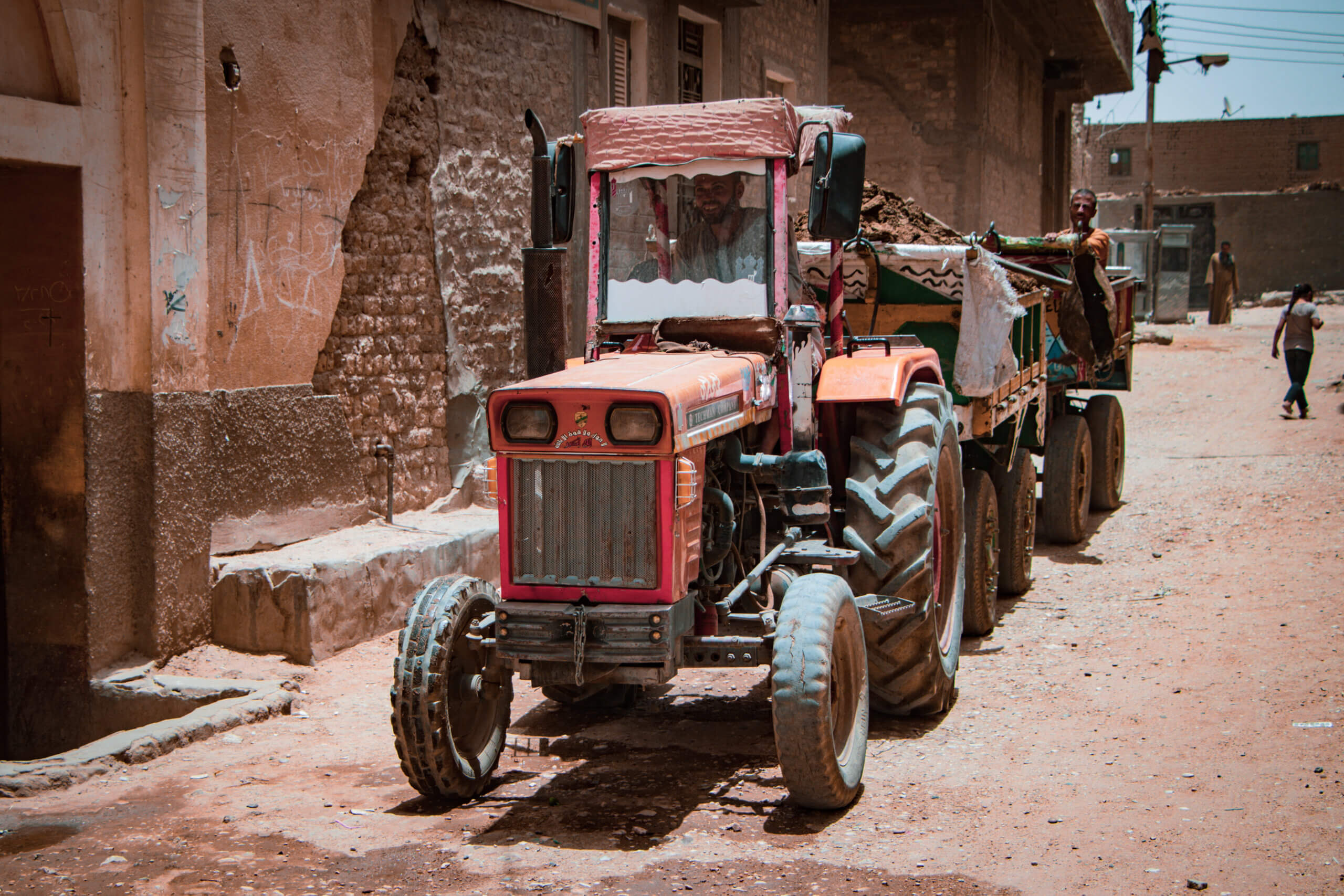
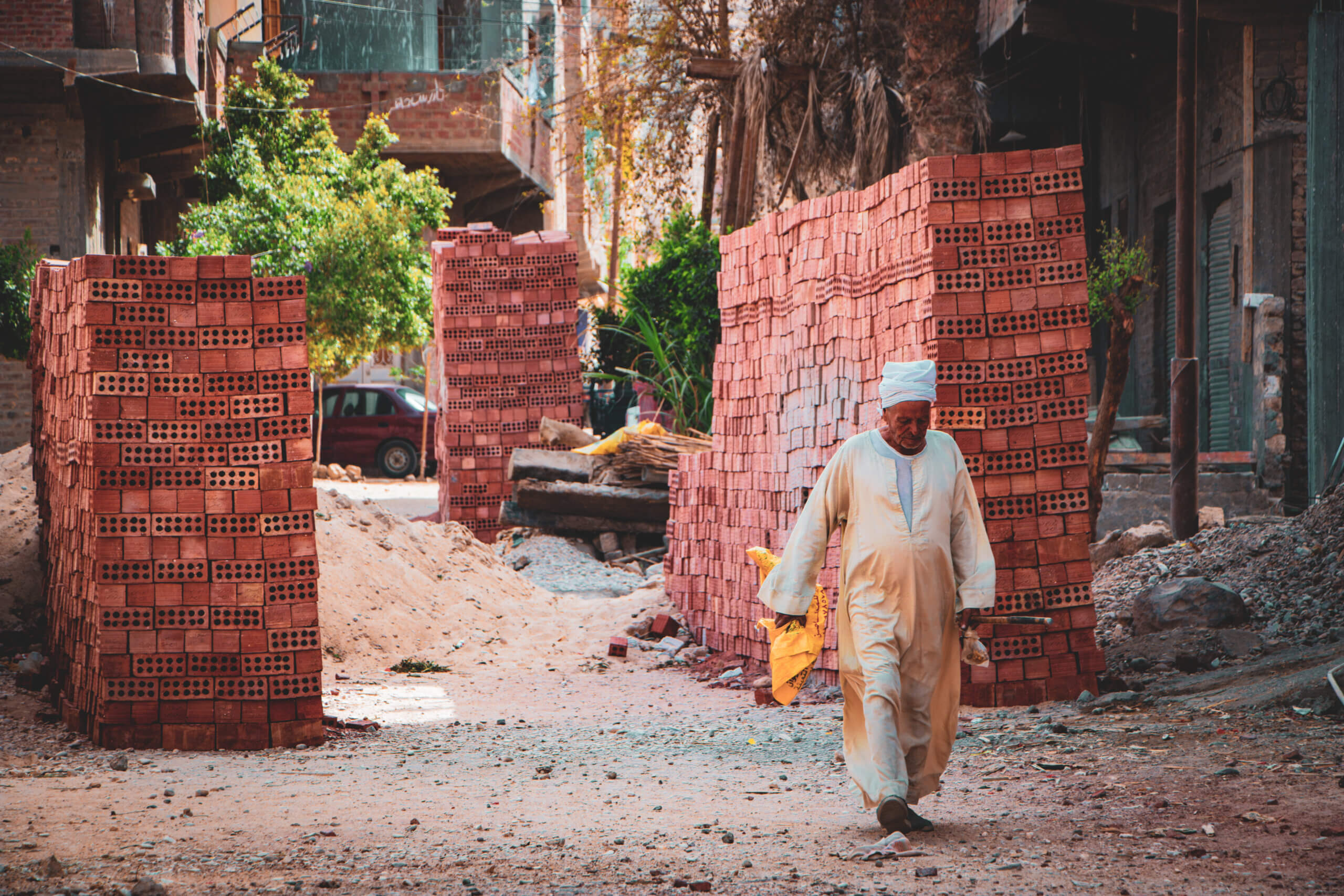
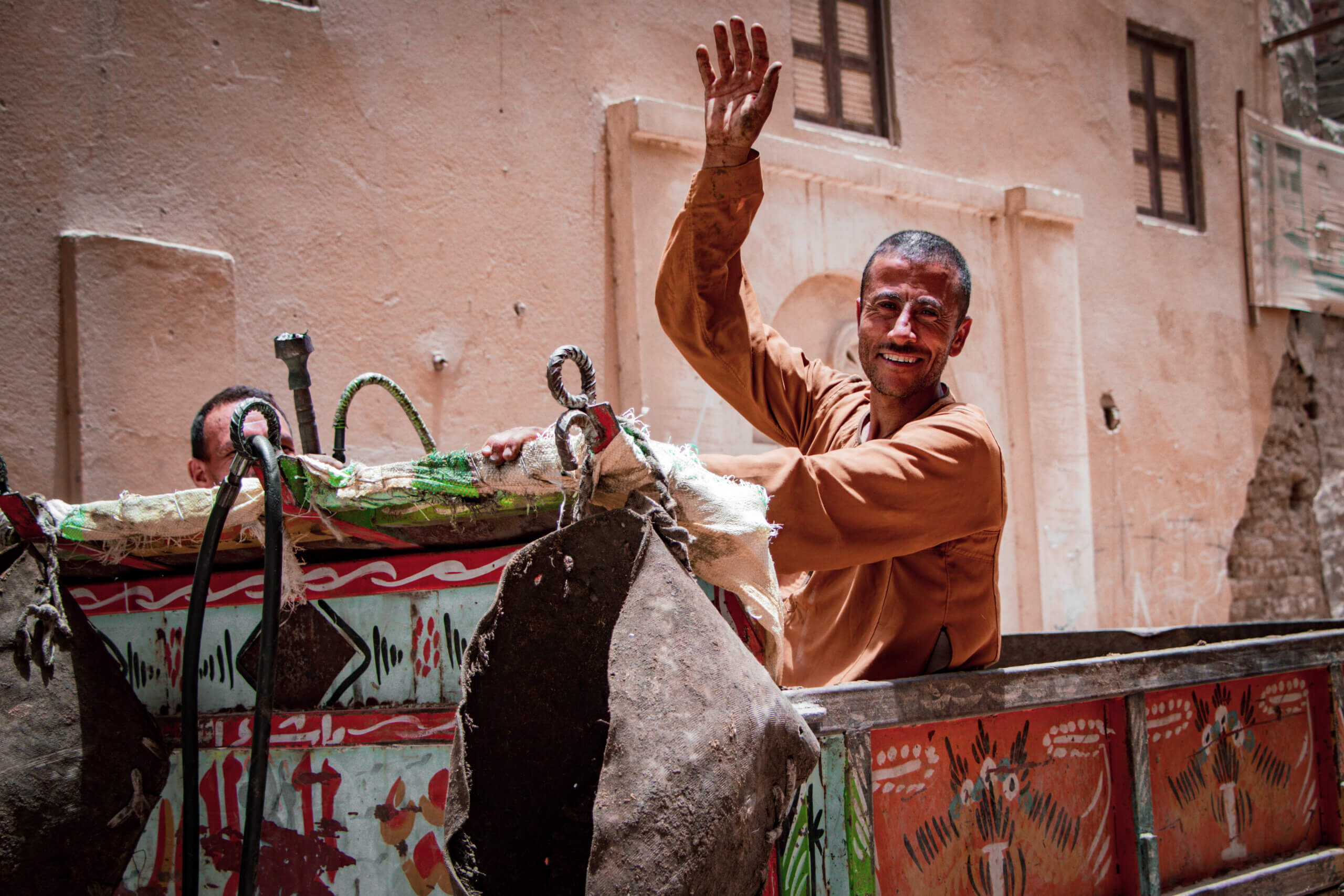
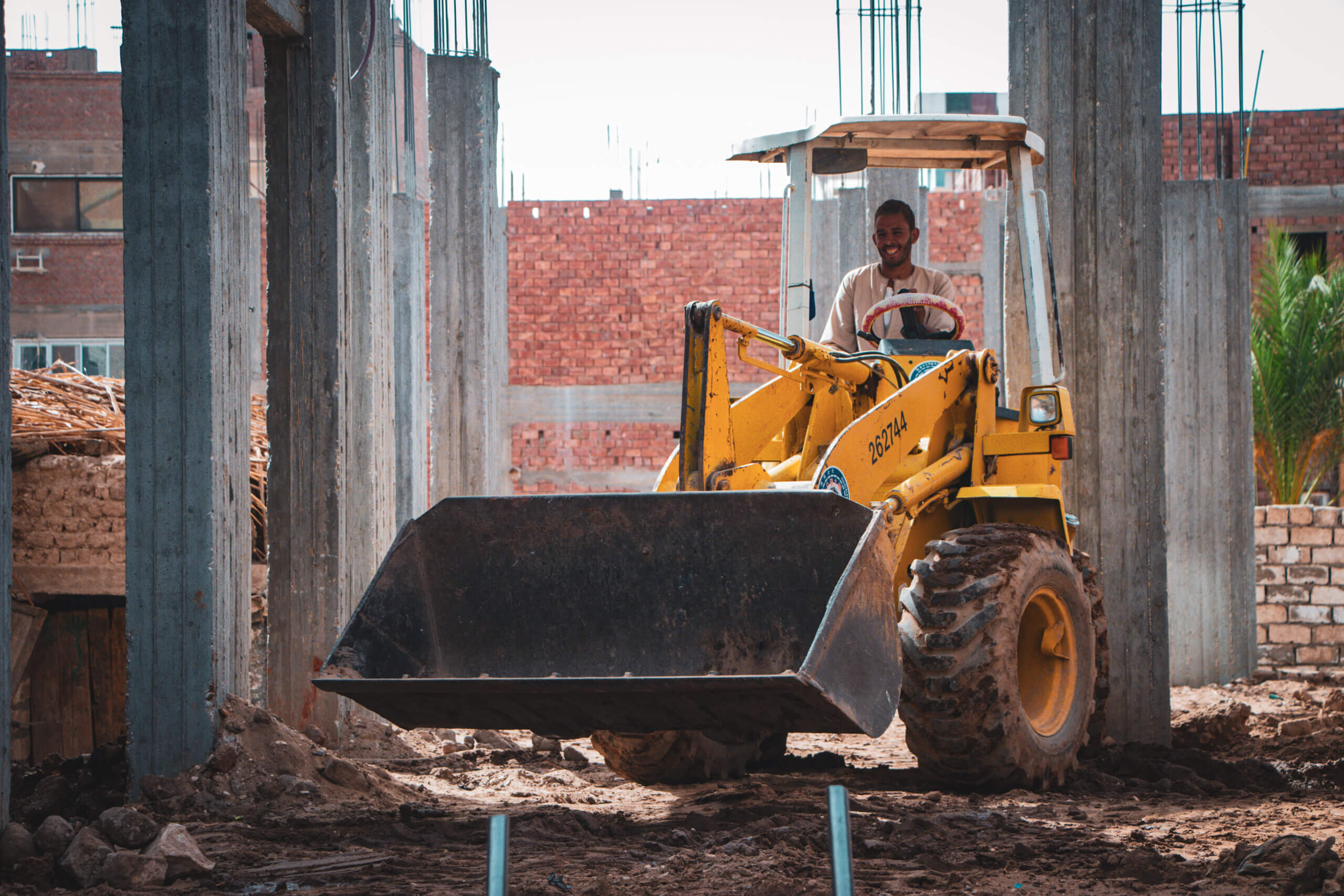
At the church entrance, there is a buzz of activity, like a hive humming with tasks. On the ground against a dusty, dim corridor wall, food bags are scattered to facilitate the formation of a chain. Quickly and naturally, the volunteers organize. Some position themselves precariously among the bags, others shuttle between various stations with an open black bag in hand to collect the products easily. The work is repetitive, sometimes tedious and meticulous, but absolutely essential.
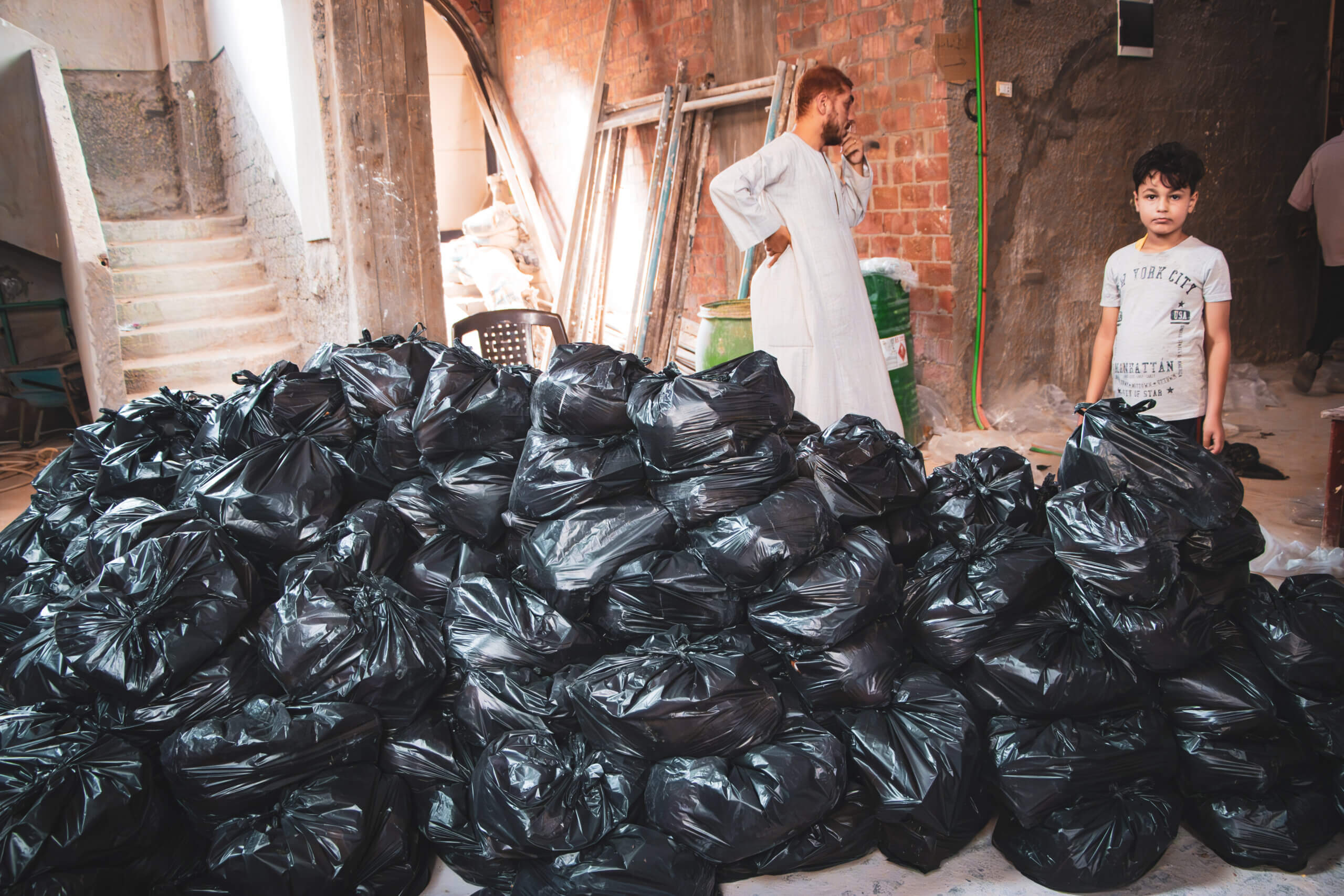
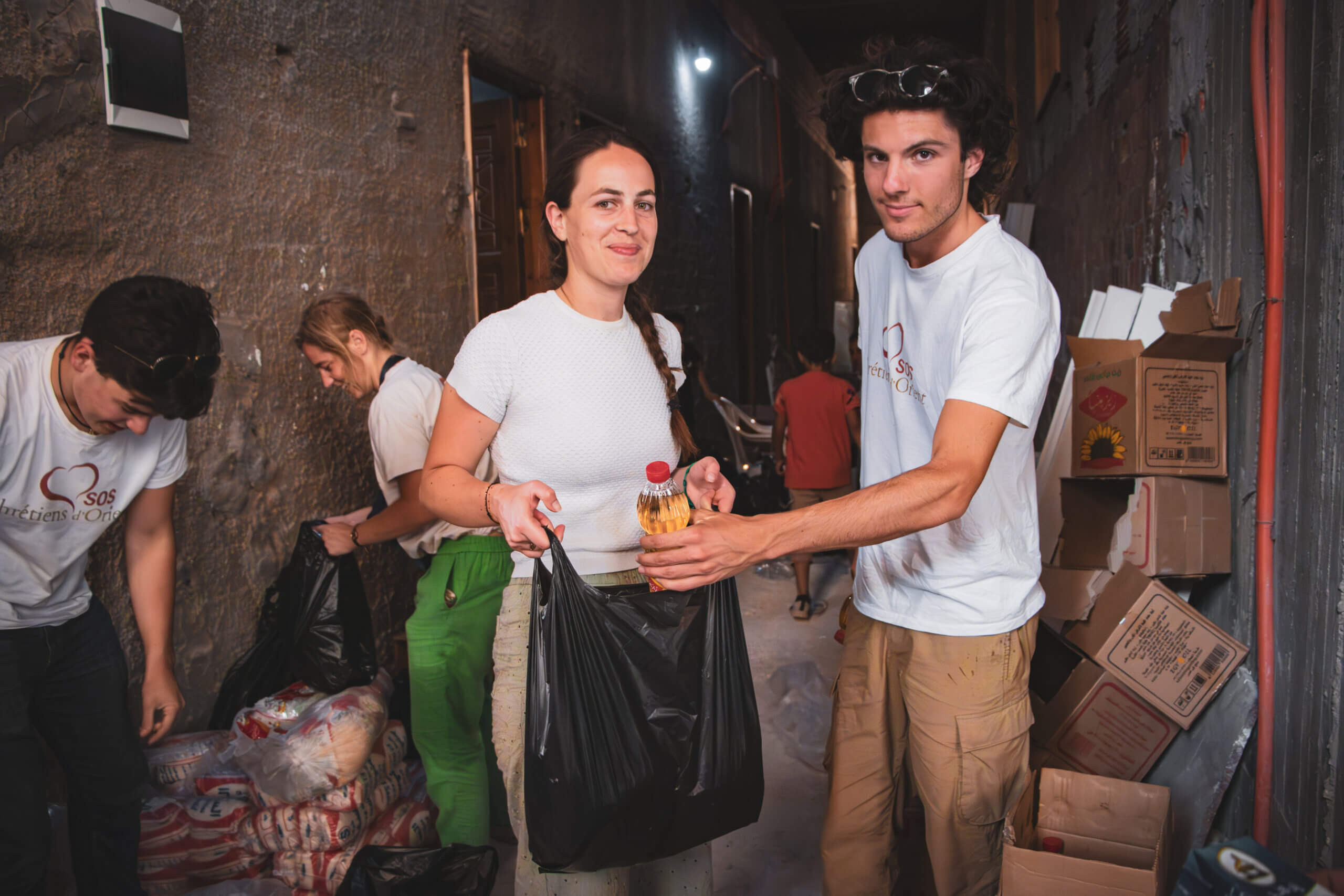
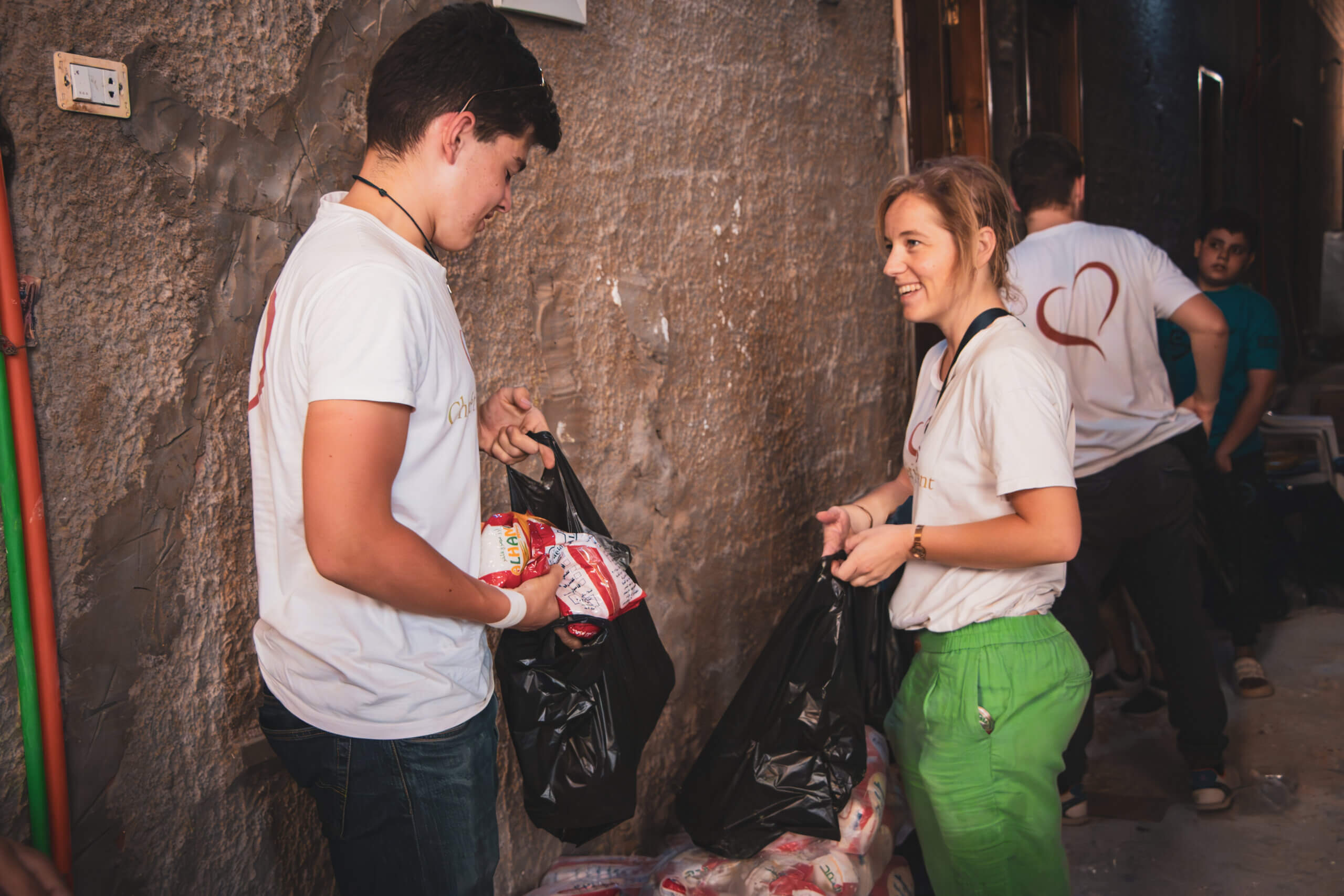
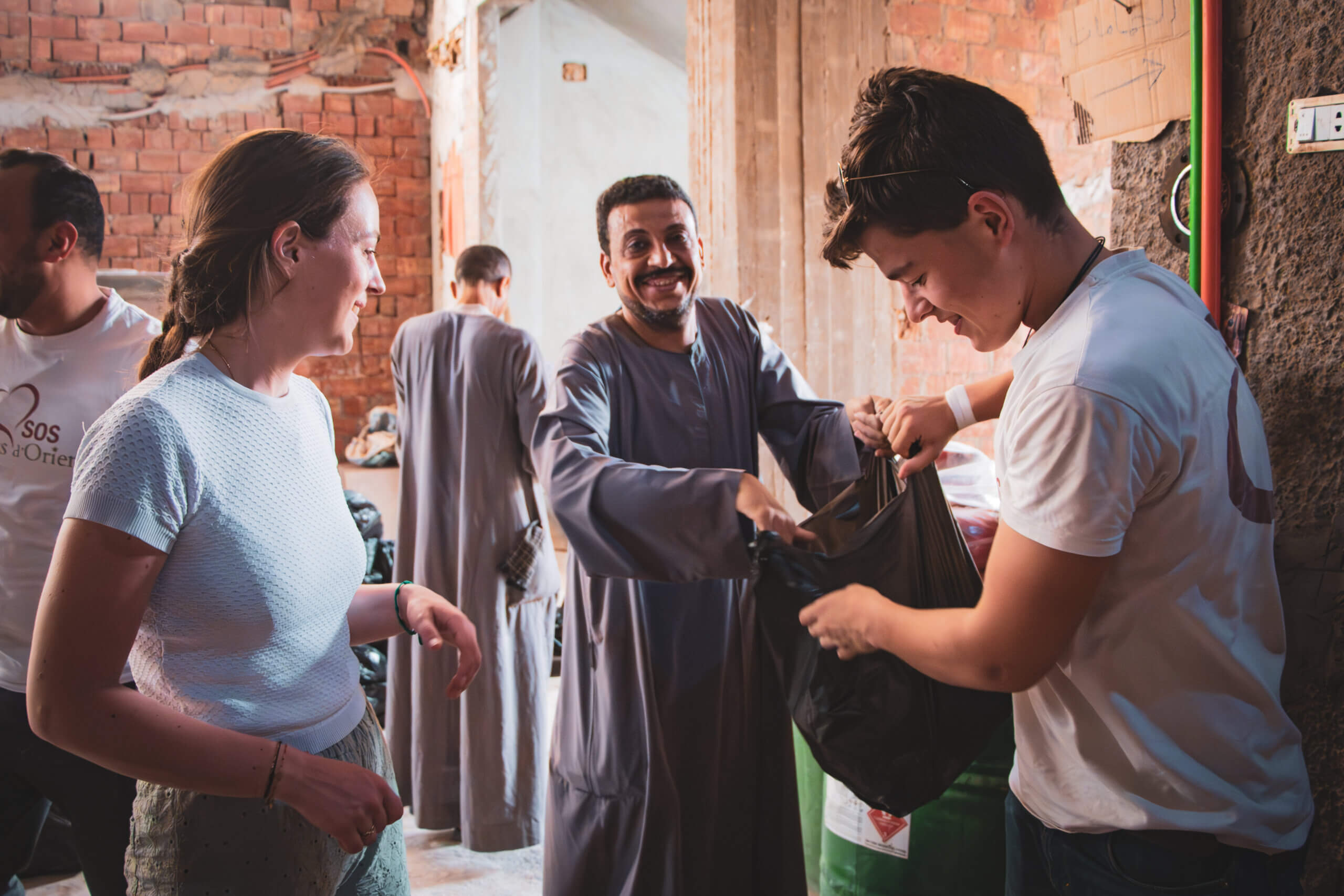
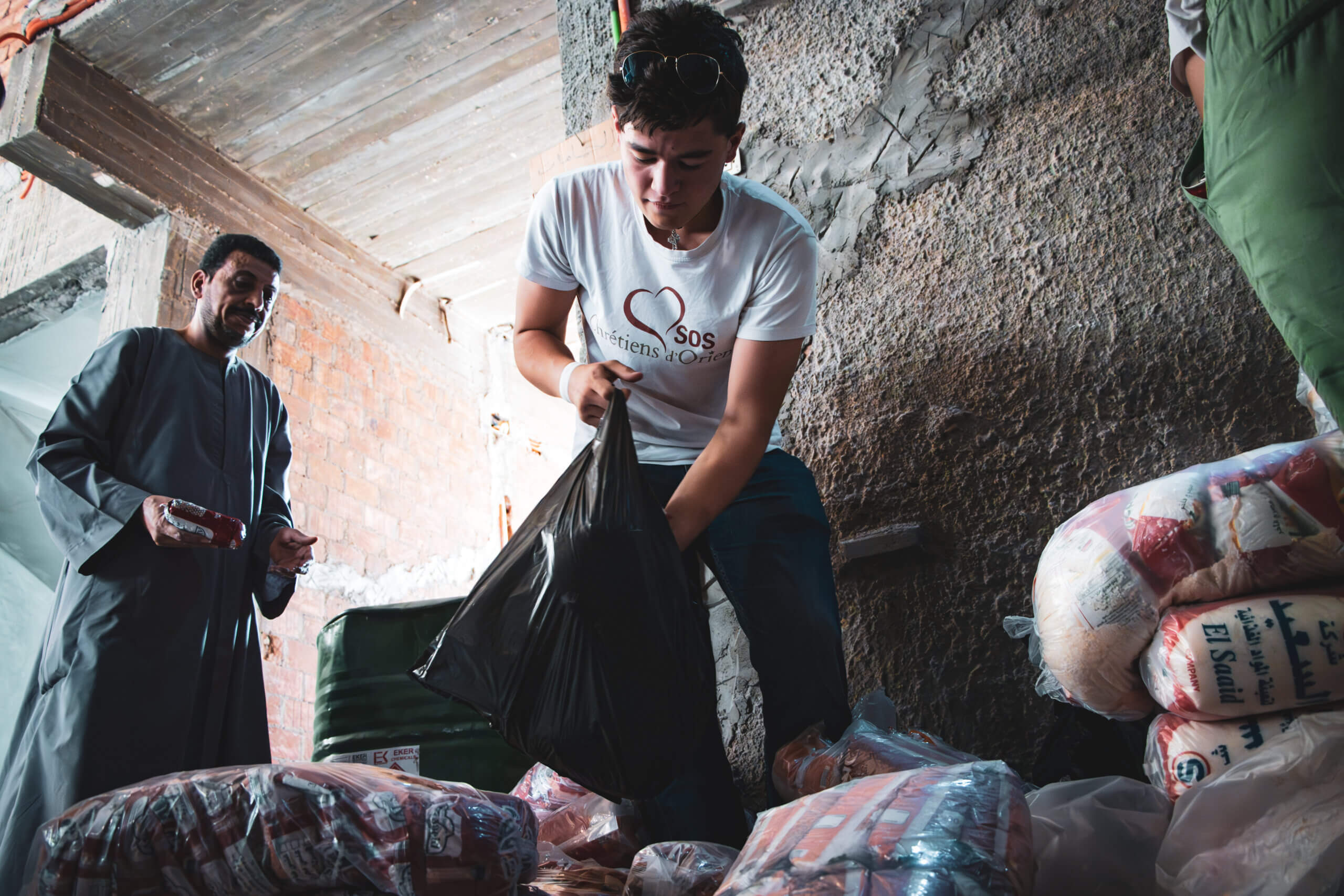
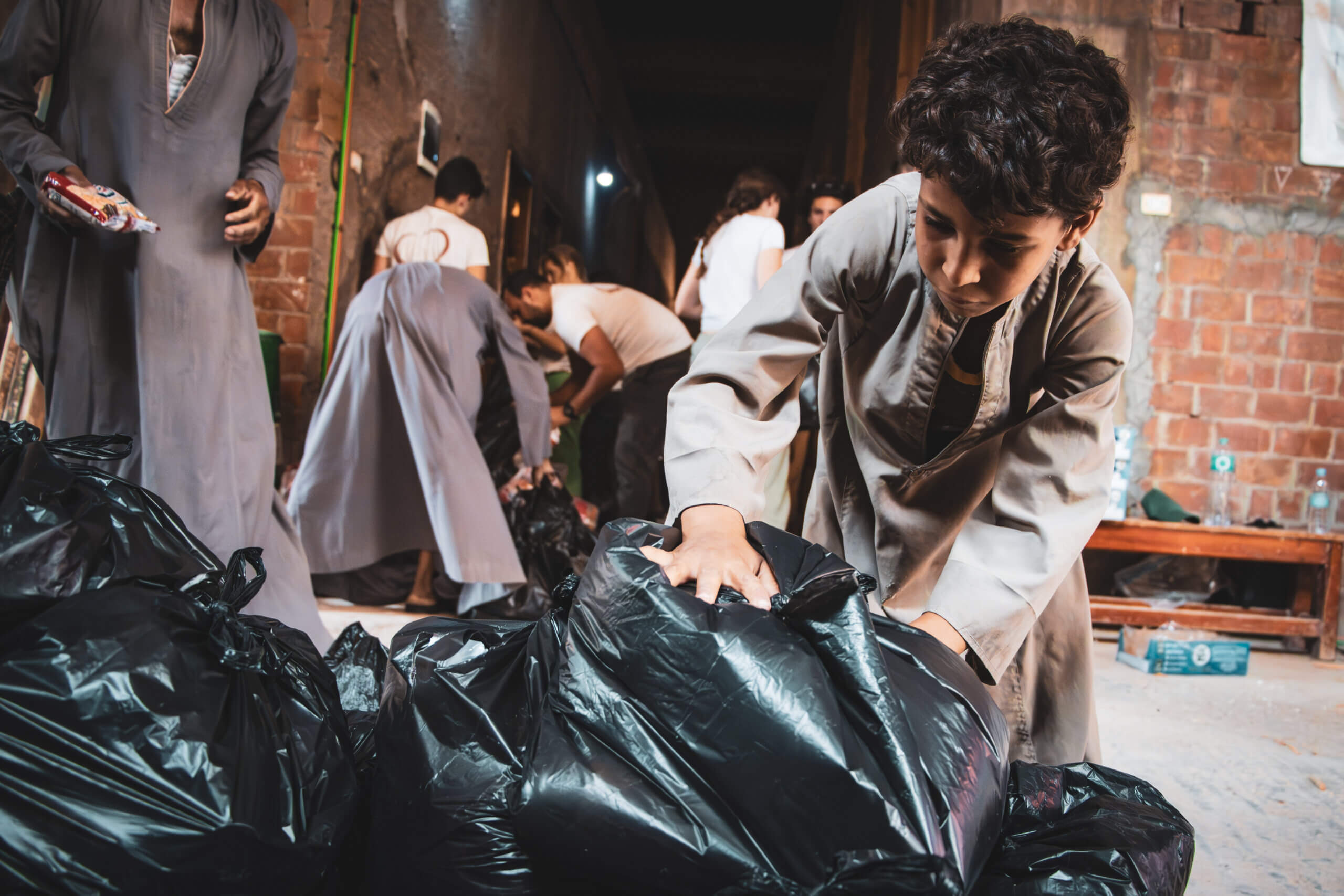
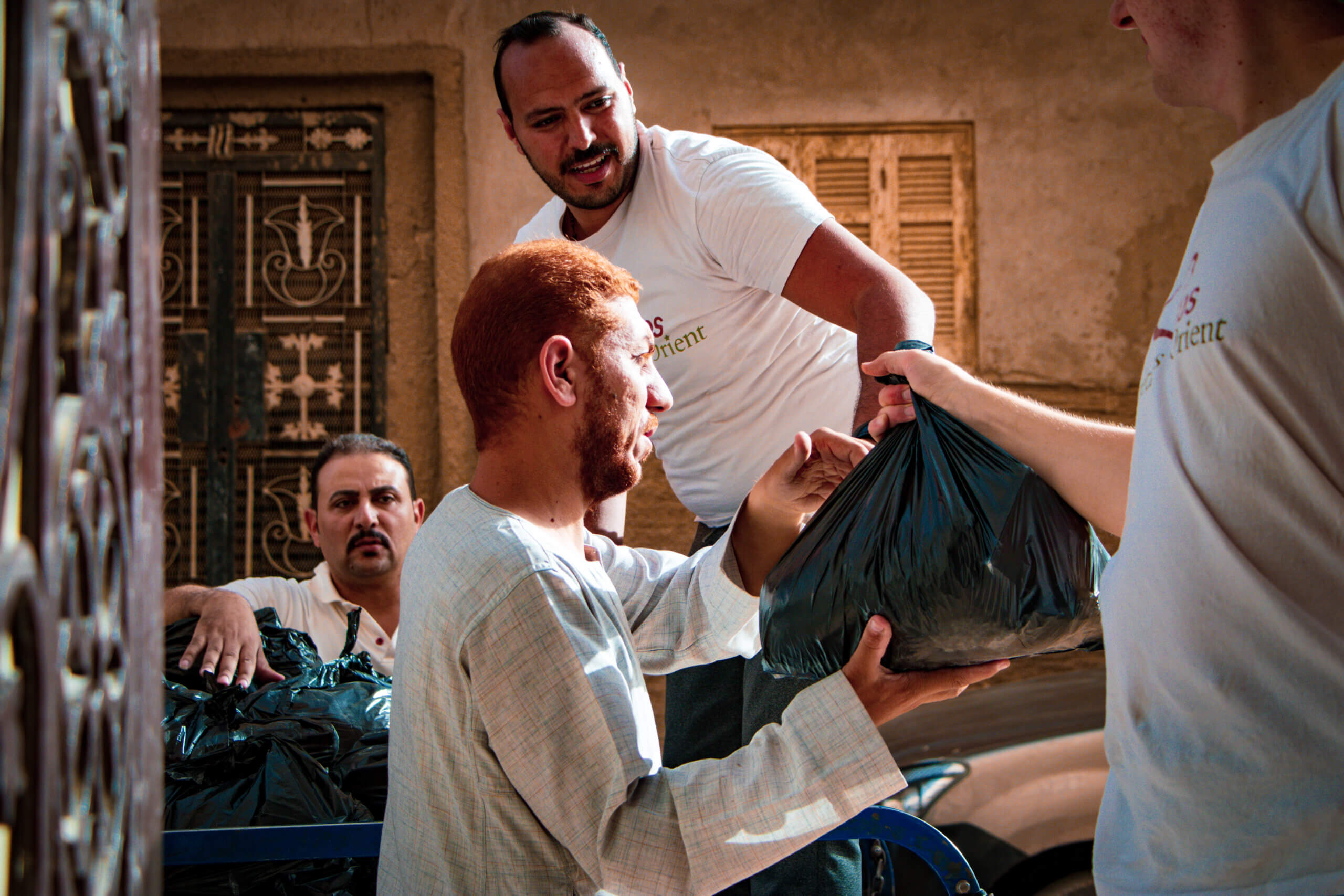
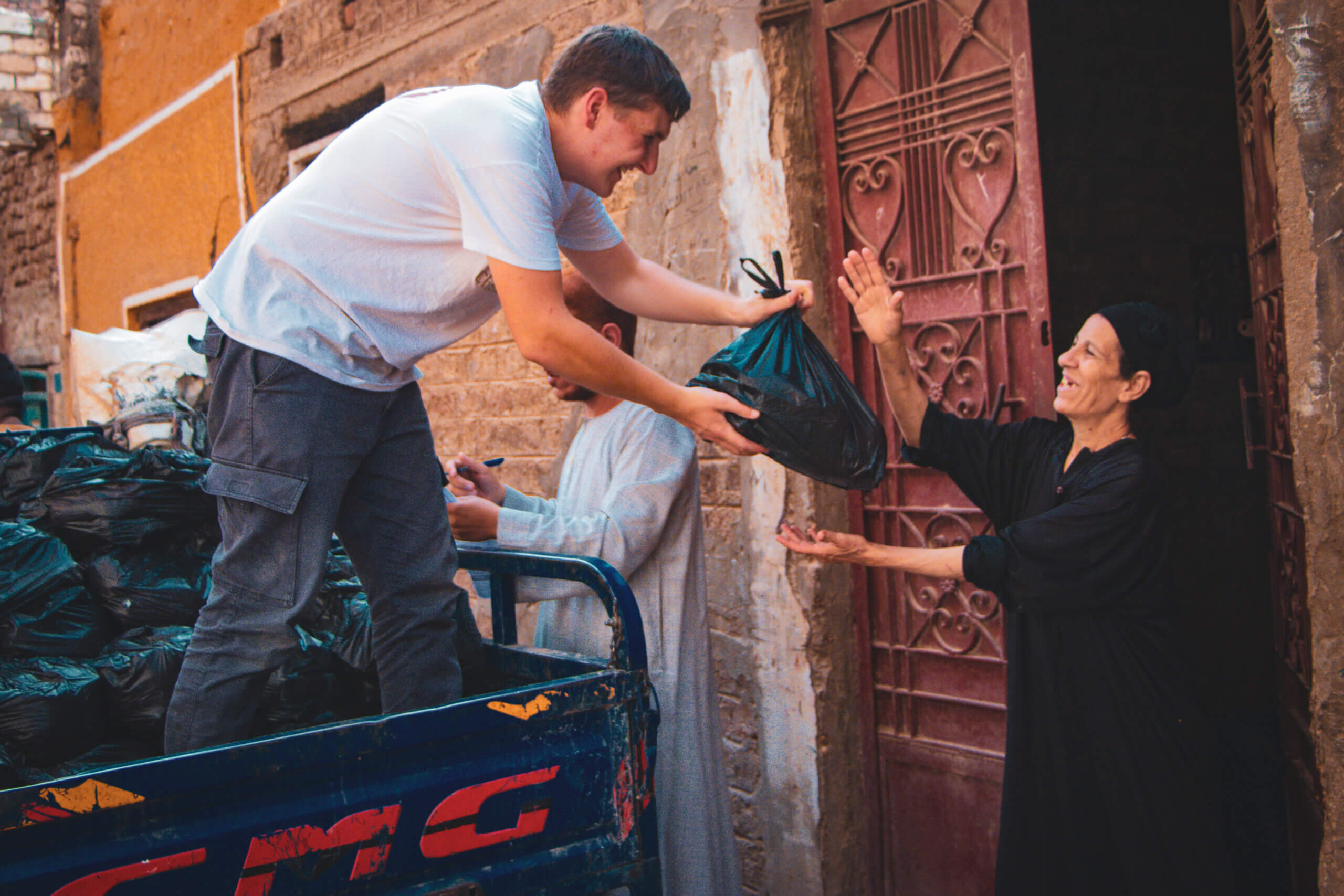
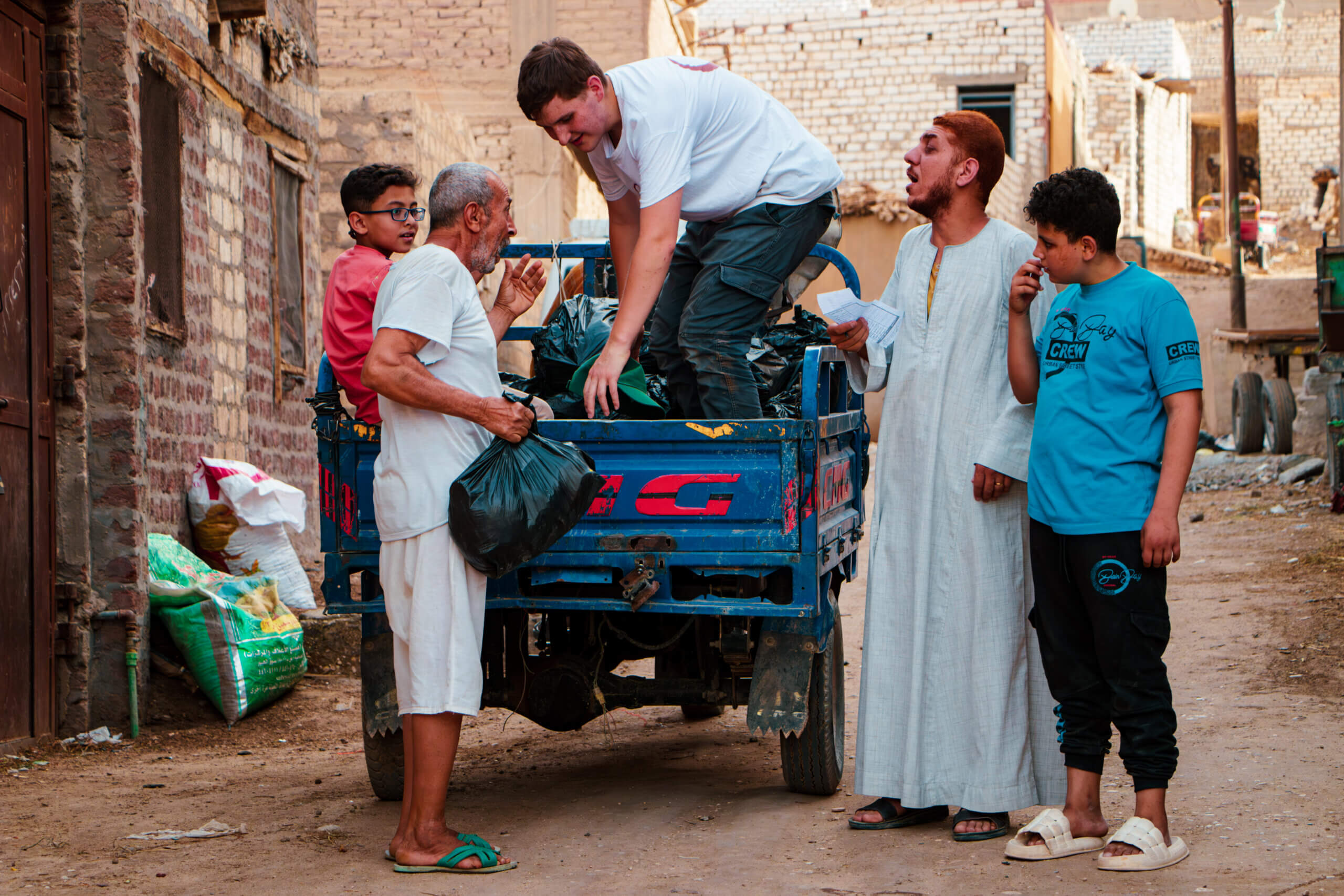
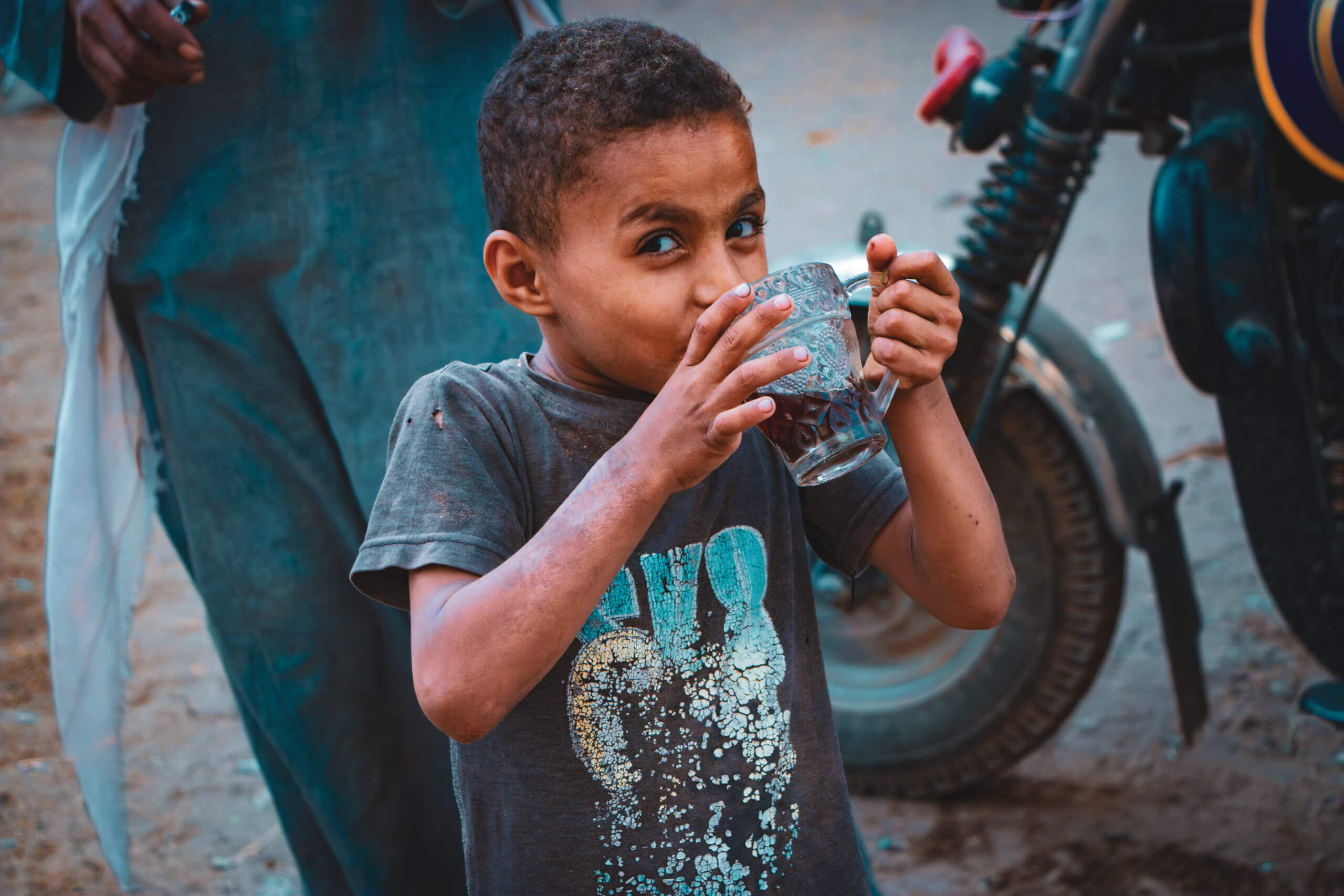
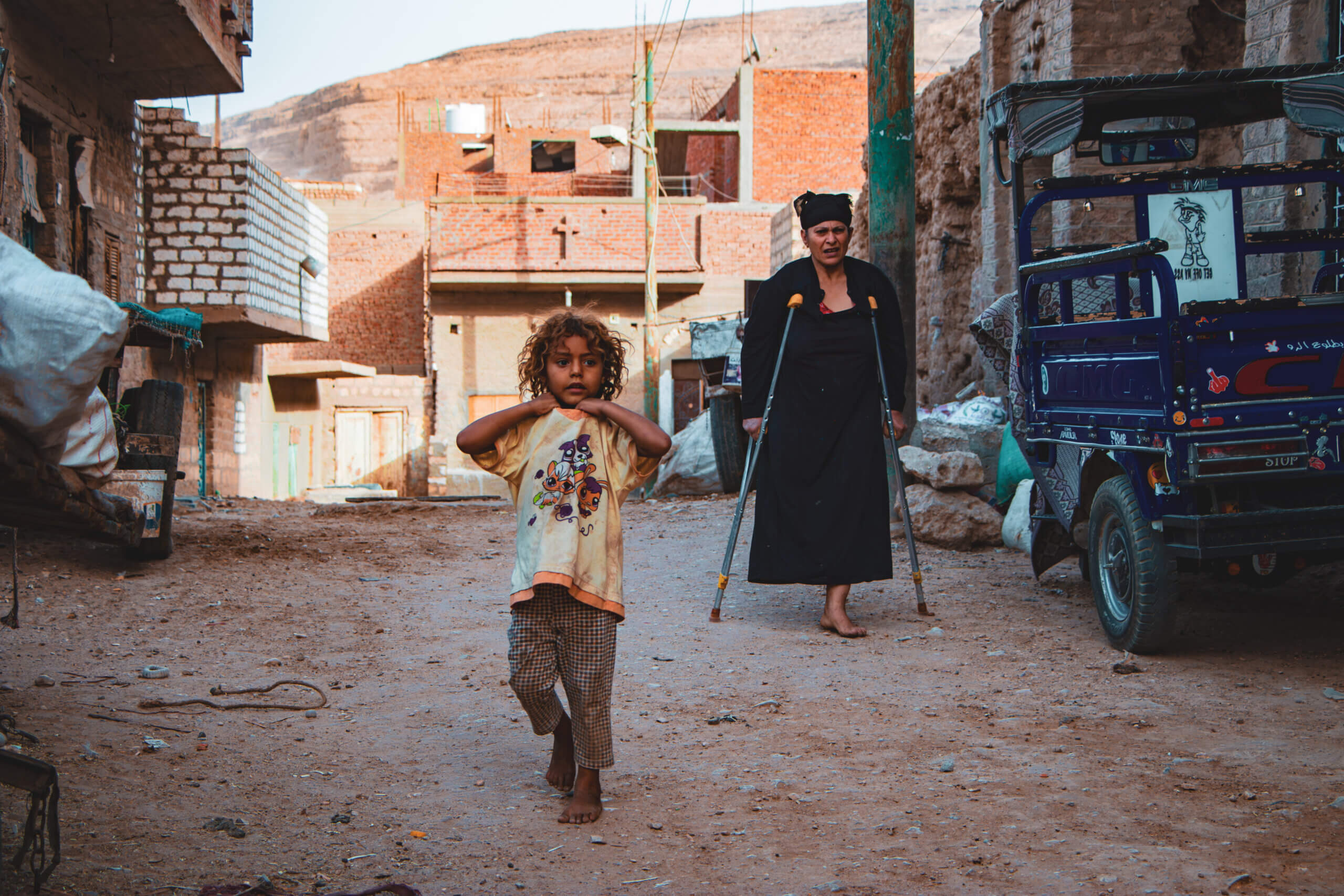
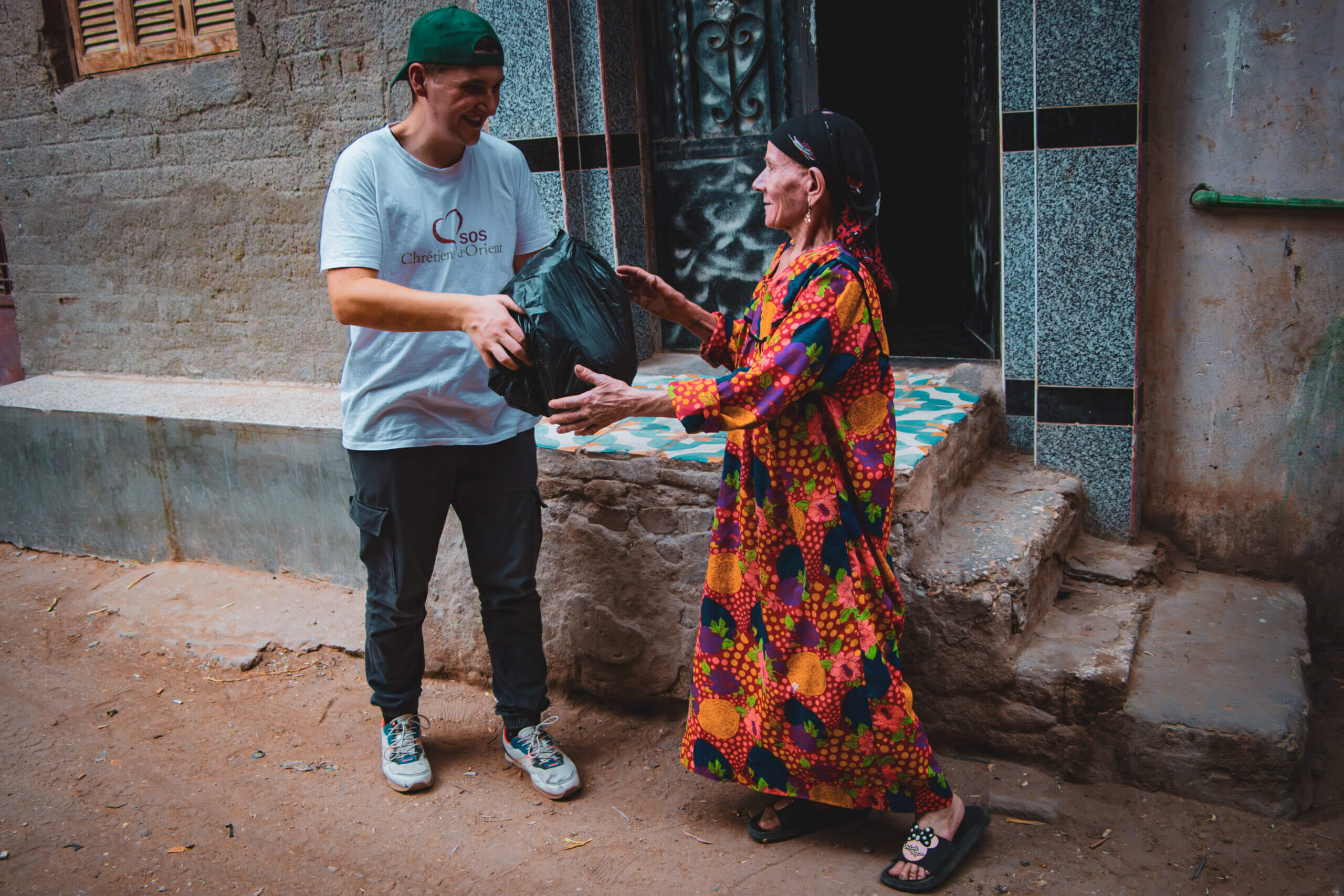
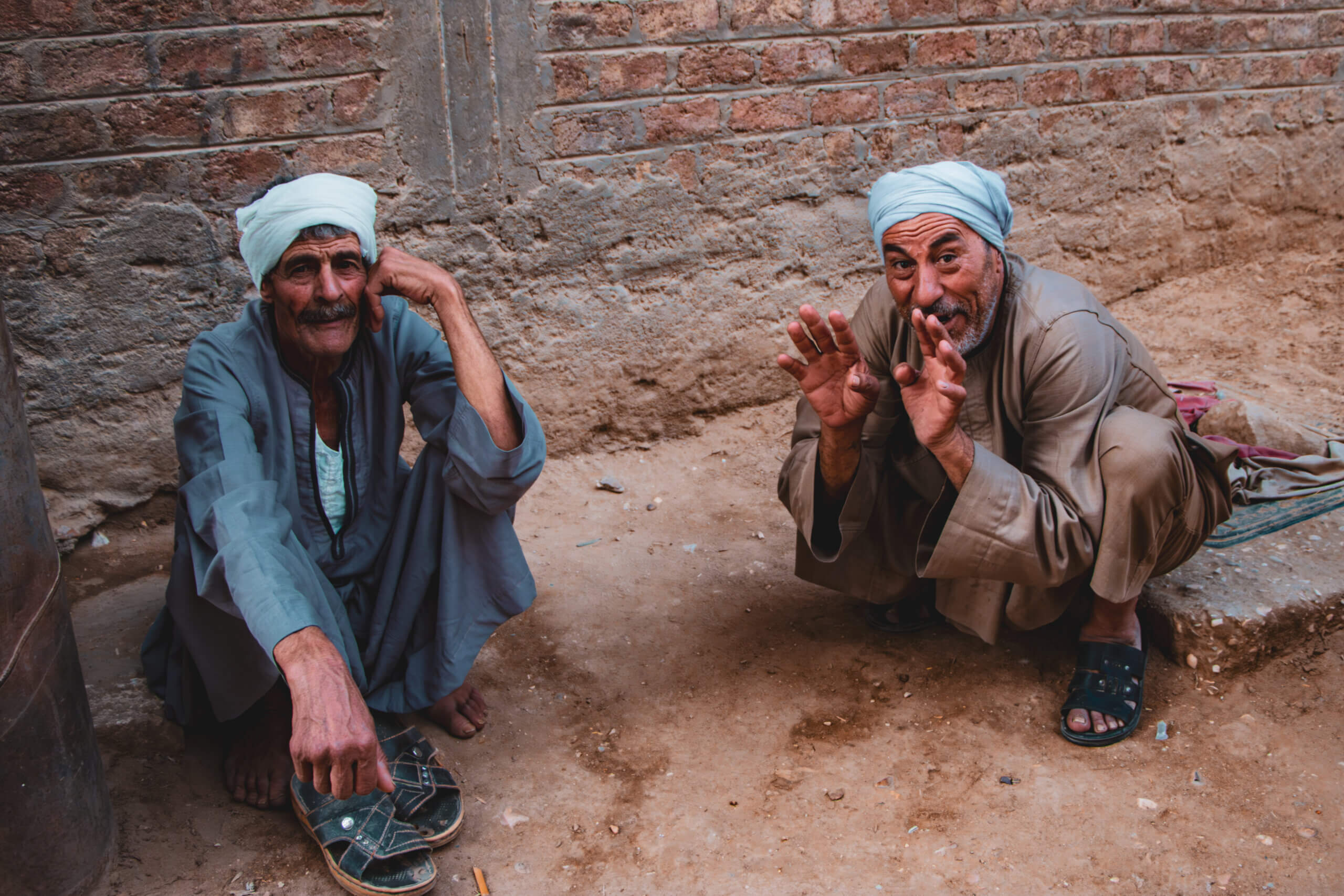
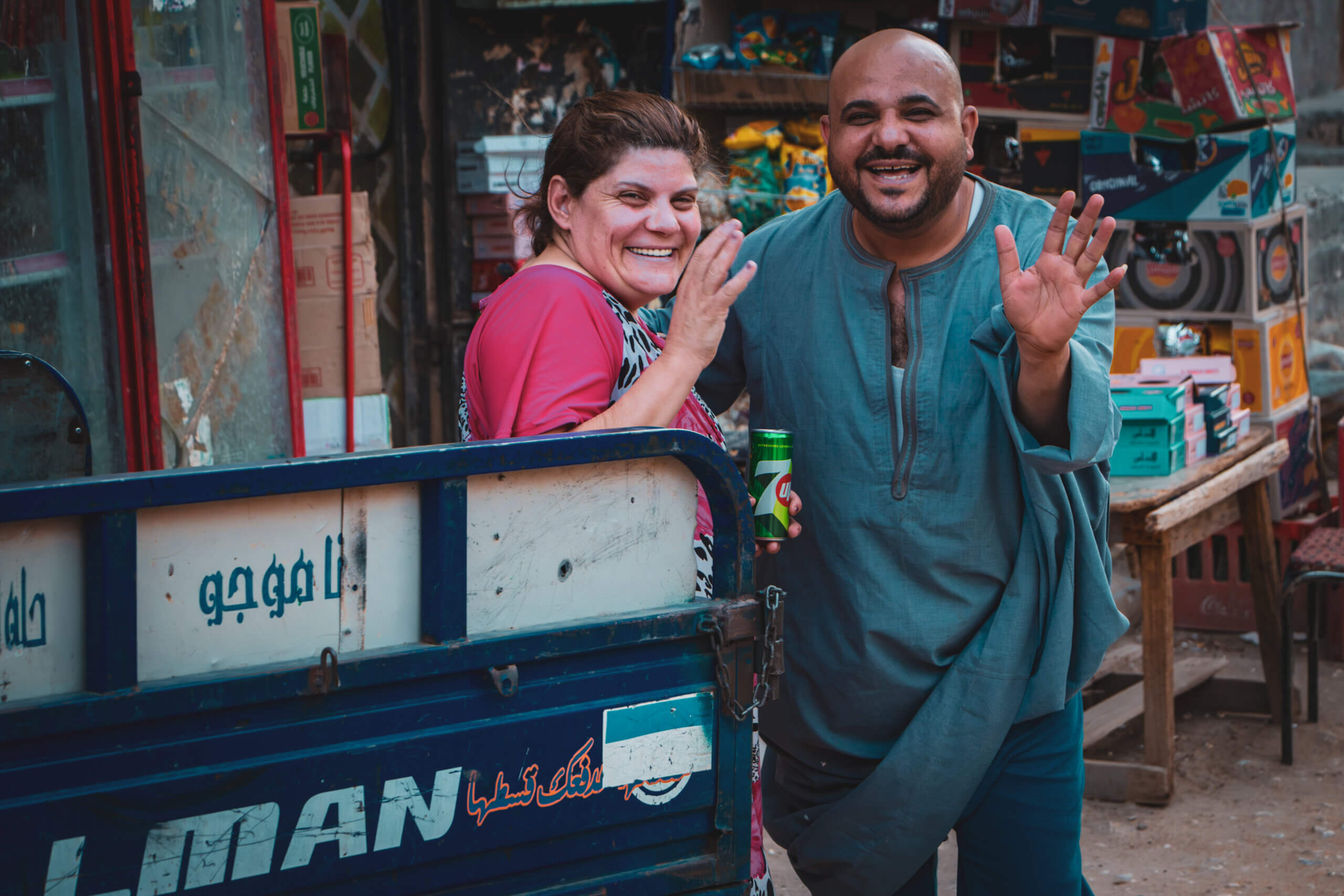
Outside, a crowd forms around our tricycle. A human tide has surged in no time, creating chaos. Hands reach out to grab the black bags without waiting for our approval, prompting shouts and gestures of discontent. It feels like a bustling market. A mischievous boy with a cup of tea gives me a knowing look, while another, still smeared with chocolate, sits comfortably on the tricycle’s handlebar, surveying the scene. Another child plays noisily with the horn, while yet another persistently asks my name.
